




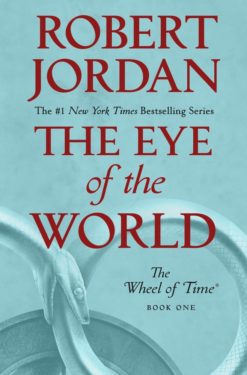
Welcome back to the Wheel of Time on Prime Book Club read-a-long! Relive the glory or get started on the Wheel of Time series for the first time starting with book 1, The Eye of the World by Robert Jordan. Are you as excited as we are?!
This week we’re discussing chapters 11-14 of Book 1, The Eye of the World and you can read those chapters below for free. Get caught up with the prologue, plus chapters 1-10 here!
CHAPTER 11
The Road to Taren Ferry
On the hard-packed dirt of the North Road the horses stretched out, manes and tails streaming back in the moonlight as they raced northward, hooves pounding a steady rhythm. Lan led the way, black horse and shadow-clad rider all but invisible in the cold night. Moiraine’s white mare, matching the stallion stride for stride, was a pale dart speeding through the dark. The rest followed in a tight line, as if they were all tied to a rope with one end in the Warder’s hands.
Rand galloped last in line, with Thom Merrilin just ahead and the others less distinct beyond. The gleeman never turned his head, reserving his eyes for where they ran, not what they ran from. If Trollocs appeared behind, or the Fade on its silent horse, or that flying creature, the Draghkar, it would be up to Rand to sound an alarm.
Every few minutes he craned his neck to peer behind while he clung to Cloud’s mane and reins. The Draghkar. . . . Worse than Trollocs and Fades, Thom had said. But the sky was empty, and only darkness and shadows met his eyes on the ground. Shadows that could hide an army.
Now that the gray had been let loose to run, the animal sped through the night like a ghost, easily keeping pace with Lan’s stallion. And Cloud wanted to go faster. He wanted to catch the black, strained to catch the black. Rand had to keep a firm hand on the reins to hold him back. Cloud lunged against his restraint as if the gray thought this were a race, fighting him for mastery with every stride. Rand clung to saddle and reins with every muscle taut. Fervently he hoped his mount did not detect how uneasy he was. If Cloud did, he would lose the one real edge he held, however precariously.
Lying low on Cloud’s neck, Rand kept a worried eye on Bela and on her rider. When he had said the shaggy mare could stay with the others, he had not meant on the run. She kept up now only by running as he had not thought she could. Lan had not wanted Egwene in their number. Would he slow for her if Bela began to flag? Or would he try to leave her behind? The Aes Sedai and the Warder thought Rand and his friends were important in some way, but for all of Moiraine’s talk of the Pattern, he did not think they included Egwene in that importance.
If Bela fell back, he would fall back, too, whatever Moiraine and Lan had to say about it. Back where the Fade and the Trollocs were. Back where the Draghkar was. With all his heart and desperation he silently shouted at Bela to run like the wind, silently tried to will strength into her. Run! His skin prickled, and his bones felt as if they were freezing, ready to split open. The Light help her, run! And Bela ran.
On and on they sped, northward into the night, time fading into an indistinct blur. Now and again the lights of farmhouses flashed into sight, then disappeared as quickly as imagination. Dogs’ sharp challenges faded swiftly behind, or cut off abruptly as the dogs decided they had been chased away. They raced through darkness relieved only by watery pale moonlight, a darkness where trees along the road loomed up without warning, then were gone. For the rest, murk surrounded them, and only a solitary night-bird’s cry, lonely and mournful, disturbed the steady pounding of hooves.
Abruptly Lan slowed, then brought the file of horses to a stop. Rand was not sure how long they had been moving, but a soft ache filled his legs from gripping the saddle. Ahead of them in the night, lights sparkled, as if a tall swarm of fireflies held one place among the trees.
Rand frowned at the lights in puzzlement, then suddenly gasped with surprise. The fireflies were windows, the windows of houses covering the sides and top of a hill. It was Watch Hill. He could hardly believe they had come so far. They had probably made the journey as fast as it had ever been traveled. Following Lan’s example, Rand and Thom Merrilin dismounted. Cloud stood head down, sides heaving. Lather, almost indistinguishable from the horse’s smoky sides, flecked the gray’s neck and shoulders. Rand thought that Cloud would not be carrying anyone further that night.
“Much as I would like to put all these villages behind me,” Thom announced, “a few hours rest would not go amiss right now. Surely we have enough of a lead to allow that?”
Rand stretched, knuckling the small of his back. “If we’re stopping the rest of the night in Watch Hill, we may as well go on up.”
A vagrant gust of wind brought a fragment of song from the village, and smells of cooking that made his mouth water. They were still celebrating in Watch Hill. There had been no Trollocs to disturb their Bel Tine. He looked for Egwene. She was leaning against Bela, slumped with weariness. The others were climbing down as well, with many a sigh and much stretching of aching muscles. Only the Warder and the Aes Sedai showed no visible sign of fatigue.
“I could do with some singing,” Mat put in tiredly. “And maybe a hot mutton pie at the White Boar.” Pausing, he added, “I’ve never been further than Watch Hill. The White Boar’s not nearly as good as the Winespring Inn.”
“The White Boar isn’t so bad,” Perrin said. “A mutton pie for me, too. And lots of hot tea to take the chill off my bones.”
“We cannot stop until we are across the Taren,” Lan said sharply. “Not for more than a few minutes.”
“But the horses,” Rand protested. “We’ll run them to death if we try to go any further tonight. Moiraine Sedai, surely you—”
He had vaguely noticed her moving among the horses, but he had not paid any real attention to what she did. Now she brushed past him to lay her hands on Cloud’s neck. Rand fell silent. Suddenly the horse tossed his head with a soft whicker, nearly pulling the reins from Rand’s hands. The gray danced a step sideways, as restive as if he had spent a week in a stable. Without a word Moiraine went to Bela.
“I did not know she could do that,” Rand said softly to Lan, his cheeks hot.
“You, of all people, should have suspected it,” the Warder replied. “You watched her with your father. She will wash all the fatigue away. First from the horses, then from the rest of you.”
“The rest of us. Not you?”
“Not me, sheepherder. I don’t need it, not yet. And not her. What she can do for others, she cannot do for herself. Only one of us will ride tired. You had better hope she does not grow too tired before we reach Tar Valon.”
“Too tired for what?” Rand asked the Warder.
“You were right about your Bela, Rand,” Moiraine said from where she stood by the mare. “She has a good heart, and as much stubbornness as the rest of you Two Rivers folk. Strange as it seems, she may be the least weary of all.”
A scream ripped the darkness, a sound like a man dying under sharp knives, and wings swooped low above the party. The night deepened in the shadow that swept over them. With panicked cries the horses reared wildly.
The wind of the Draghkar’s wings beat at Rand with a feel like the touch of slime, like chittering in the dank dimness of a nightmare. He had no time even to feel the fear of it, for Cloud exploded into the air with a scream of his own, twisting desperately as if attempting to shake off some clinging thing. Rand, hanging onto the reins, was jerked off his feet and dragged across the ground, Cloud screaming as though the big gray felt wolves tearing at his hocks.
Somehow he maintained his grip on the reins; using the other hand as much as his legs he scrambled onto his feet, taking leaping, staggering steps to keep from being pulled down again. His breath came in ragged pants of desperation. He could not let Cloud get away. He threw out a frantic hand, barely catching the bridle. Cloud reared, lifting him into the air; Rand clung helplessly, hoping against hope that the horse would quieten.
The shock of landing jarred Rand to his teeth, but suddenly the gray was still, nostrils flaring and eyes rolling, stiff-legged and trembling. Rand was trembling as well, and all but hanging from the bridle. That jolt must have shaken the fool animal, too, he thought. He took three or four deep, shaky breaths. Only then could he look around and see what had happened to the others.
Chaos reigned among the party. They clutched reins against jerking heads, trying with little success to calm the rearing horses that dragged them about in a milling mass. Only two seemingly had no trouble at all with their mounts. Moiraine sat straight in her saddle, the white mare stepping delicately away from the confusion as if nothing at all out of the ordinary had happened. On foot, Lan scanned the sky, sword in one hand and reins in the other; the sleek black stallion stood quietly beside him.
Sounds of merrymaking no longer came from Watch Hill. Those in the village must have heard the cry, too. Rand knew they would listen awhile, and perhaps watch for what had caused it, then return to their jollity. They would soon forget the incident, its memory submerged by song and food and dance and fun. Perhaps when they heard the news of what had happened in Emond’s Field some would remember, and wonder. A fiddle began to play, and after a moment a flute joined in. The village was resuming its celebration.
“Mount!” Lan commanded curtly. Sheathing his sword, he leaped onto the stallion. “The Draghkar would not have showed itself unless it had already reported our whereabouts to the Myrddraal.” Another strident shriek drifted down from far above, fainter but no less harsh. The music from Watch Hill silenced raggedly once more. “It tracks us now, marking us for the Halfman. He won’t be far.”
The horses, fresh now as well as fear-struck, pranced and backed away from those trying to mount. A cursing Thom Merrilin was the first into his saddle, but the others were up soon after. All but one.
“Hurry, Rand!” Egwene shouted. The Draghkar gave shrill voice once more, and Bela ran a few steps before she could rein the mare in. “Hurry!”
With a start Rand realized that instead of trying to mount Cloud he had been standing there staring at the sky in a vain attempt to locate the source of those vile shrieks. More, all unaware, he had drawn Tam’s sword as if to fight the flying thing.
His face reddened, making him glad for the night to hide him. Awkwardly, with one hand occupied by the reins, he re-sheathed the blade, glancing hastily at the others. Moiraine, Lan, and Egwene all were looking at him, though he could not be sure how much they could see in the moonlight. The rest seemed too absorbed with keeping their horses under control to pay him any mind. He put a hand on the pommel and reached the saddle in one leap, as if he had been doing the like all his life. If any of his friends had noticed the sword, he would surely hear about it later. There would be time enough to worry about it then.
As soon as he was in the saddle they were all off at a gallop again, up the road and by the dome-like hill. Dogs barked in the village; their passage was not entirely unnoticed. Or maybe the dogs smelled Trollocs, Rand thought. The barking and the village lights alike vanished quickly behind them.
They galloped in a knot, horses all but jostling together as they ran. Lan ordered them to spread out again, but no one wanted to be even a little alone in the night. A scream came from high overhead. The Warder gave up and let them run clustered.
Rand was close behind Moiraine and Lan, the gray straining in an effort to force himself between the Warder’s black and the Aes Sedai’s trim mare. Egwene and the gleeman raced on either flank of him, while Rand’s friends crowded in behind. Cloud, spurred by the Draghkar’s cries, ran beyond anything Rand could do to slow him even had he wished to, yet the gray could not gain so much as a step on the other two horses.
The Draghkar’s shriek challenged the night.
Stout Bela ran with neck outstretched and tail and mane streaming in the wind of her running, matching the larger horses’ every stride. The Aes Sedai must have done something more than simply ridding her of fatigue.
Egwene’s face in the moonlight was smiling in excited delight. Her braid streamed behind like the horses’ manes, and the gleam in her eyes was not all from the moon, Rand was sure. His mouth dropped open in surprise, until a swallowed biteme set him off into a fit of coughing.
Lan must have asked a question, for Moiraine suddenly shouted over the wind and the pounding of hooves. “I cannot! Most especially not from the back of a galloping horse. They are not easily killed, even when they can be seen. We must run, and hope.”
They galloped through a tatter of fog, thin and no higher than the horses’ knees. Cloud sped through it in two strides, and Rand blinked, wondering if he had imagined it. Surely the night was too cold for fog. Another patch of ragged gray whisked by them to one side, larger than the first. It had been growing, as if the mist oozed from the ground. Above them, the Draghkar screamed in rage. Fog enveloped the riders for a brief moment and was gone, came again and vanished behind. The icy mist left a chill dampness on Rand’s face and hands. Then a wall of pale gray loomed before them, and they were suddenly enshrouded. The thickness of it muffled the sound of their hooves to dullness, and the cries from overhead seemed to come through a wall. Rand could only just make out the shapes of Egwene and Thom Merrilin on either side of him.
Lan did not slow their pace. “There is still only one place we can be going,” he called, his voice sounding hollow and directionless.
“Myrddraal are sly,” Moiraine replied. “I will use its own slyness against it.” They galloped on silently.
Slaty mist obscured both sky and ground, so that the riders, themselves turned to shadow, appeared to float through night clouds. Even the legs of their own horses seemed to have vanished.
Rand shifted in his saddle, shrinking away from the icy fog. Knowing that Moiraine could do things, even seeing her do them, was one thing; having those things leave his skin damp was something else again. He realized he was holding his breath, too, and called himself nine kinds of idiot. He could not ride all the way to Taren Ferry without breathing. She had used the One Power on Tam, and he seemed all right. Still, he had to make himself let that breath go and inhale. The air was heavy, but if colder it was otherwise no different than that on any other foggy night. He told himself that, but he was not sure he believed it.
Lan encouraged them to keep close, now, to stay where each could see the outlines of others in that damp, frosty grayness. Yet the Warder still did not slacken his stallion’s dead run. Side by side, Lan and Moiraine led the way through the fog as if they could see clearly what lay ahead. The rest could only trust and follow. And hope.
The shrill cries that had hounded them faded as they galloped, and then were gone, but that gave small comfort. Forest and farmhouses, moon and road were shrouded and hidden. Dogs still barked, hollow and distant in the gray haze, when they passed farms, but there was no other sound save the dull drumming of their horses’ hooves. Nothing in that featureless ashen fog changed. Nothing gave any hint of the passage of time except the growing ache in thigh and back.
It had to have been hours, Rand was sure. His hands had clutched his reins until he was not sure he could release them, and he wondered if he would ever walk properly again. He glanced back only once. Shadows in the fog raced behind him, but he could not even be certain of their number. Or even that they really were his friends. The chill and damp soaked through his cloak and coat and shirt, soaked into his bones, so it seemed. Only the rush of air past his face and the gather and stretch of the horse beneath him told him he was moving at all. It must have been hours.
“Slow,” Lan called suddenly. “Draw rein.”
Rand was so startled that Cloud forced between Lan and Moiraine, forging ahead for half a dozen strides before he could pull the big gray to a halt and stare.
Houses loomed in the fog on all sides, houses strangely tall to Rand’s eye. He had never seen this place before, but he had often heard descriptions. That tallness came from high redstone foundations, necessary when the spring melt in the Mountains of Mist made the Taren overflow its banks. They had reached Taren Ferry.
Lan trotted the black warhorse past him. “Don’t be so eager, sheepherder.”
Discomfited, Rand fell into place without explaining as the party moved deeper into the village. His face was hot, and for the moment the fog was welcome.
A lone dog, unseen in the cold mist, barked at them furiously, then ran away. Here and there a light appeared in a window as some early-riser stirred. Other than the dog, no sound save the muted clops of their horses’ hooves disturbed the last hour of the night.
Rand had met few people from Taren Ferry. He tried to recall what little he knew about them. They seldom ventured down into what they called “the lower villages,” with their noses up as if they smelled something bad. The few he had met bore strange names, like Hilltop and Stoneboat. One and all, Taren Ferry folk had a reputation for slyness and trickery. If you shook hands with a Taren Ferry man, people said, you counted your fingers afterwards.
Lan and Moiraine stopped before a tall, dark house that looked exactly like any other in the village. Fog swirled around the Warder like smoke as he leaped from his saddle and mounted the stairs that rose to the front door, as high above the street as their heads. At the top of the stairs Lan hammered with his fist on the door.
“I thought he wanted quiet,” Mat muttered.
Lan’s pounding went on. A light appeared in the window of the next house, and someone shouted angrily, but the Warder kept on with his drumming.
Abruptly the door was flung back by a man in a nightshirt that flapped about his bare ankles. An oil lamp in one hand illumined a narrow face with pointed features. He opened his mouth angrily, then let it stay open as his head swiveled to take in the fog, eyes bulging. “What’s this?” he said. “What’s this?” Chill gray tendrils curled into the doorway, and he hurriedly stepped back away from them.
“Master Hightower,” Lan said. “Just the man I need. We want to cross over on your ferry.”
“He never even saw a high tower,” Mat snickered. Rand made shushing motions at his friend. The sharp-faced fellow raised his lamp higher and peered down at them suspiciously.
After a minute Master Hightower said crossly, “The ferry goes over in daylight. Not in the night. Not ever. And not in this fog, neither. Come back when the sun’s up and the fog’s gone.”
He started to turn away, but Lan caught his wrist. The ferryman opened his mouth angrily. Gold glinted in the lamplight as the Warder counted out coins one by one into the other’s palm. Hightower licked his lips as the coins clinked, and by inches his head moved closer to his hand, as if he could not believe what he was seeing.
“And as much again,” Lan said, “when we are safely on the other side. But we leave now.”
“Now?” Chewing his lower lip, the ferrety man shifted his feet and peered out at the mist-laden night, then nodded abruptly. “Now it is. Well, let loose my wrist. I have to rouse my haulers. You don’t think I pull the ferry across myself, do you?”
“I will wait at the ferry,” Lan said flatly. “For a little while.” He released his hold on the ferryman.
Master Hightower jerked the handful of coins to his chest and, nodding agreement, hastily shoved the door closed with his hip.
CHAPTER 12
Across the Taren
Lan came down the stairs, telling the company to dismount and lead their horses after him through the fog. Again they had to trust that the Warder knew where he was going. The fog swirled around Rand’s knees, hiding his feet, obscuring everything more than a yard away. The fog was not as heavy as it had been outside the town, but he could barely make out his companions.
Still no human stirred in the night except for them. A few more windows than before showed a light, but the thick mist turned most of them to dim patches, and as often as not that hazy glow, hanging in the gray, was all that was visible. Other houses, revealing a little more, seemed to float on a sea of cloud or to thrust abruptly out of the mist while their neighbors remained hidden, so that they could have stood alone for miles around.
Rand moved stiffly from the ache of the long ride, wondering if there was any way he could walk the rest of the way to Tar Valon. Not that walking was much better than riding at that moment, of course, but even so his feet were almost the only part of him that was not sore. At least he was used to walking.
Only once did anyone speak loudly enough for Rand to hear clearly. “You must handle it,” Moiraine said in answer to something unheard from Lan. “He will remember too much as it is, and no help for it. If I stand out in his thoughts. . . .”
Rand grumpily shifted his now-sodden cloak on his shoulders, keeping close with the others. Mat and Perrin grumbled to themselves, muttering under their breaths, with bitten-off exclamations whenever one stubbed a toe on something unseen. Thom Merrilin grumbled, too, words like “hot meal” and “fire” and “mulled wine” reaching Rand, but neither the Warder nor the Aes Sedai took notice. Egwene marched along without a word, her back straight and her head high. It was a somewhat painfully hesitant march, to be sure, for she was as unused to riding as the rest.
She was getting her adventure, he thought glumly, and as long as it lasted he doubted if she would notice little things like fog or damp or cold. There must be a difference in what you saw, it seemed to him, depending on whether you sought adventure or had it forced on you. The stories could no doubt make galloping through a cold fog, with a Draghkar and the Light alone knew what else chasing you, sound thrilling. Egwene might be feeling a thrill; he only felt cold and damp and glad to have a village around him again, even if it was Taren Ferry.
Abruptly he walked into something large and warm in the murk: Lan’s stallion. The Warder and Moiraine had stopped, and the rest of the party did the same, patting their mounts as much to comfort themselves as the animals. The fog was a little thinner here, enough for them to see one another more clearly than they had in a long while, but not enough to make out much more. Their feet were still hidden by low billows like gray floodwater. The houses seemed to have all been swallowed.
Cautiously Rand led Cloud forward a little way and was surprised to hear his boots scrape on wooden planks. The ferry landing. He backed up carefully, making the gray back as well. He had heard what the Taren Ferry landing was like—a bridge that led nowhere except to the ferryboat. The Taren was supposed to be wide and deep, with treacherous currents that could pull under the strongest swimmer. Much wider than the Winespring Water, he supposed. With the fog added in. . . . It was a relief when he felt dirt under his feet again.
A fierce “Hsst!” from Lan, as sharp as the fog. The Warder gestured at them as he dashed to Perrin’s side and threw back the stocky youth’s cloak, exposing the great axe. Obediently, if still not understanding, Rand tossed his own cloak over his shoulder to show his sword. As Lan moved swiftly back to his horse, bobbing lights appeared in the mist, and muffled footsteps approached.
Six stolid-faced men in rough clothes followed Master Hightower. The torches they carried burned away a patch of fog around them. When they stopped, all of the party from Emond’s Field could be plainly seen, the lot of them surrounded by a gray wall that seemed thicker for the torchlight reflected from it. The ferryman examined them, his narrow head tilted, nose twitching like a weasel sniffing the breeze for a trap.
Lan leaned against his saddle with apparent casualness, but one hand rested ostentatiously on the long hilt of his sword. There was an air about him of a metal spring, compressed, waiting.
Rand hurriedly copied the Warder’s pose—at least insofar as putting his hand on his sword. He did not think he could achieve that deadly-seeming slouch. They’d probably laugh if I tried.
Perrin eased his axe in its leather loop and planted his feet deliberately. Mat put a hand to his quiver, though Rand was not sure what condition his bowstring was in after being out in all this damp. Thom Merrilin stepped forward grandly and held up one empty hand, turning it slowly. Suddenly he gestured with a flourish, and a dagger twirled between his fingers. The hilt slapped into his palm, and, abruptly nonchalant, he began trimming his fingernails.
A low, delighted laugh floated from Moiraine. Egwene clapped as if watching a performance at Festival, then stopped and looked abashed, though her mouth twitched with a smile just the same.
Hightower seemed far from amused. He stared at Thom, then cleared his throat loudly. “There was mention made of more gold for the crossing.” He looked around at them again, a sullen, sly look. “What you gave me before is in a safe place now, hear? It’s none of it where you can get at it.”
“The rest of the gold,” Lan told him, “goes into your hand when we are on the other side.” The leather purse hanging at his waist clinked as he gave it a little shake.
For a moment the ferryman’s eyes darted, but at last he nodded. “Let’s be about it, then,” he muttered, and stalked out onto the landing followed by his six helpers. The fog burned away around them as they moved; gray tendrils closed in behind, quickly filling where they had been. Rand hurried to keep up.
The ferry itself was a wooden barge with high sides, boarded by a ramp that could be raised to block off the end. Ropes as thick as a man’s wrist ran along each side of it, ropes fastened to massive posts at the end of the landing and disappearing into the night over the river. The ferryman’s helpers stuck their torches in iron brackets on the ferry’s sides, waited while everyone led their horses aboard, then pulled up the ramp. The deck creaked beneath hooves and shuffling feet, and the ferry shifted with the weight.
Hightower muttered half under his breath, growling for them to keep the horses still and stay to the center, out of the haulers’ way. He shouted at his helpers, chivvying them as they readied the ferry to cross, but the men moved at the same reluctant speed whatever he said, and he was halfhearted about it, often cutting off in mid-shout to hold his torch high and peer into the fog. Finally he stopped shouting altogether and went to the bow, where he stood staring into the mist that covered the river. He did not move until one of the haulers touched his arm; then he jumped, glaring.
“What? Oh. You, is it? Ready? About time. Well, man, what are you waiting for?” He waved his arms, heedless of the torch and the way the horses whickered and tried to move back. “Cast off! Give way! Move!” The man slouched off to comply, and Hightower peered once more into the fog ahead, rubbing his free hand uneasily on his coat front.
The ferry lurched as its moorings were loosed and the strong current caught it, then lurched again as the guide-ropes held it. The haulers, three to a side, grabbed hold of the ropes at the front of the ferry and laboriously began walking toward the back, muttering uneasily as they edged out onto the gray-cloaked river.
The landing disappeared as mist surrounded them, tenuous streamers drifting across the ferry between the flickering torches. The barge rocked slowly in the current. Nothing except the steady tread of the haulers, forward to take hold of the ropes and back down again pulling, gave a hint of any other movement. No one spoke. The villagers kept as close to the center of the ferry as they could. They had heard the Taren was far wider than the streams they were used to; the fog made it infinitely vaster in their minds.
After a time Rand moved closer to Lan. Rivers a man could not wade or swim or even see across were nervous-making to someone who had never seen anything broader or deeper than a Waterwood pond. “Would they really have tried to rob us?” he asked quietly. “He acted more as if he were afraid we would rob him.”
The Warder eyed the ferryman and his helpers—none appeared to be listening—before answering just as softly. “With the fog to hide them . . . well, when what they do is hidden, men sometimes deal with strangers in ways they wouldn’t if there were other eyes to see. And the quickest to harm a stranger are the soonest to think a stranger will harm them. This fellow . . . I believe he might sell his mother to Trollocs for stew meat if the price was right. I’m a little surprised you ask. I heard the way people in Emond’s Field speak of those from Taren Ferry.”
“Yes, but. . . . Well, everyone says they. . . . But I never thought they would actually. . . .” Rand decided he had better stop thinking that he knew anything at all of what people were like beyond his own village. “He might tell the Fade we crossed on the ferry,” he said at last. “Maybe he’ll bring the Trollocs over after us.”
Lan chuckled dryly. “Robbing a stranger is one thing, dealing with a Halfman something else again. Can you really see him ferrying Trollocs over, especially in this fog, no matter how much gold was offered? Or even talking to a Myrddraal, if he had any choice? Just the thought of it would keep him running for a month. I don’t think we have to worry very much about Darkfriends in Taren Ferry. Not here. We are safe . . . for a time, at least. From this lot, anyway. Watch yourself.”
Hightower had turned from peering into the fog ahead. Pointed face pushed forward and torch held high, he stared at Lan and Rand as if seeing them clearly for the first time. Deck-planks creaked under the haulers’ feet and the occasional stamp of a hoof. Abruptly the ferryman twitched as he realized they were watching him watching them. With a leap he spun back to looking for the far bank, or whatever it was he sought in the fog.
“Say no more,” Lan said, so softly Rand almost could not understand. “These are bad days to speak of Trollocs, or Darkfriends, or the Father of Lies, with strange ears to hear. Such talk can bring worse than the Dragon’s Fang scrawled on your door.”
Rand felt no desire to go on with his questions. Gloom settled on him even more than it had before. Darkfriends! As if Fades and Trollocs and Draghkar were not enough to worry about. At least you could tell a Trolloc at sight.
Abruptly pilings loomed shadowy in the mist before them. The ferry thudded against the far bank, and then the haulers were hurrying to lash the craft fast and let down the ramp at that end with a thump, while Mat and Perrin announced loudly that the Taren was not half as wide as they had heard. Lan led his stallion down the ramp, followed by Moiraine and the others. As Rand, the last, took Cloud down behind Bela, Master Hightower called out angrily.
“Here, now! Here! Where’s my gold?”
“It shall be paid.” Moiraine’s voice came from somewhere in the mist. Rand’s boots clumped from the ramp to a wooden landing. “And a silver mark for each of your men,” the Aes Sedai added, “for the quick crossing.”
The ferryman hesitated, face pushed forward as if he smelled danger, but at the mention of silver the haulers roused themselves. Some paused to seize a torch, but they all thumped down the ramp before Hightower could open his mouth. With a sullen grimace, the ferryman followed his crew.
Cloud’s hooves clumped hollowly in the fog as Rand made his way carefully along the landing. The gray mist was as thick here as over the river. At the foot of the landing, the Warder was handing out coins, surrounded by the torches of Hightower and his fellows. Everyone else except Moiraine waited just beyond in an anxious cluster. The Aes Sedai stood looking at the river, though what she could see was beyond Rand. With a shiver he hitched up his cloak, sodden as it was. He was really out of the Two Rivers, now, and it seemed much farther away than the width of a river.
“There,” Lan said, handing a last coin to Hightower. “As agreed.” He did not put up his purse, and the ferrety-faced man eyed it greedily.
With a loud creak, the landing shivered. Hightower jerked upright, head swiveling back toward the mist-cloaked ferry. The torches remaining on board were a pair of dim, fuzzy points of light. The landing groaned, and with a thunderous crack of snapping wood, the twin glows lurched, then began to revolve. Egwene cried out wordlessly, and Thom cursed.
“It’s loose!” Hightower screamed. Grabbing his haulers, he pushed them toward the end of the landing. “The ferry’s loose, you fools! Get it! Get it!”
The haulers stumbled a few steps under Hightower’s shoves, then stopped. The faint lights on the ferry spun faster, then faster still. The fog above them swirled, sucked into a spiral. The landing trembled. The cracking and splintering of wood filled the air as the ferry began breaking apart.
“Whirl pool,” one of the haulers said, his voice filled with awe.
“No whirl pools on the Taren.” Hightower sounded empty. “Never been a whirl pool. . . .”
“An unfortunate occurrence.” Moiraine’s voice was hollow in the fog that made her a shadow as she turned from the river.
“Unfortunate,” Lan agreed in a flat tone. “It seems you’ll be carrying no one else across the river for a time. An ill thing that you lost your craft in our service.” He delved again into his purse, ready in his hand. “This should repay you.”
For a moment Hightower stared at the gold, glinting in Lan’s hand in the torchlight, then his shoulders hunched and his eyes darted to the others he had carried across. Made indistinct by the fog, the Emond’s Fielders stood silently. With a frightened, inarticulate cry, the ferryman snatched the coins from Lan, whirled, and ran into the mist. His haulers were only half a step behind him, their torches quickly swallowed as they vanished upriver.
“There is nothing further to hold us here,” the Aes Sedai said as if nothing out of the ordinary had happened. Leading her white mare, she started away from the landing, up the bank.
Rand stood staring at the hidden river. It could have been happenstance. No whirl pools, he said, but it. . . . Abruptly he realized everyone else had gone. Hurriedly he scrambled up the gently sloping bank.
In the space of three paces the heavy mist faded away to nothing. He stopped dead and stared back. Along a line running down the shore thick gray hung on one side, on the other shone a clear night sky, still dark though the sharpness of the moon hinted at dawn not far off.
The Warder and the Aes Sedai stood conferring beside their horses a short distance beyond the border of the fog. The others huddled a little apart; even in the moonlit darkness their nervousness was palpable. All eyes were on Lan and Moiraine, and all but Egwene were leaning back as if torn between losing the pair and getting too close. Rand trotted the last few spans to Egwene’s side, leading Cloud, and she grinned at him. He did not think the shine in her eyes was all from moonlight.
“It follows the river as if drawn with a pen,” Moiraine was saying in satisfied tones. “There are not ten women in Tar Valon who could do that unaided. Not to mention from the back of a galloping horse.”
“I don’t mean to complain, Moiraine Sedai,” Thom said, sounding oddly diffident for him, “but would it not have been better to cover us a little further? Say to Baerlon? If that Draghkar looks on this side of the river, we’ll lose everything we have gained.”
“Draghkar are not very smart, Master Merrilin,” the Aes Sedai said dryly. “Fearsome and deadly dangerous, and with sharp eyes, but little intelligence. It will tell the Myrddraal that this side of the river is clear, but the river itself is cloaked for miles in both directions. The Myrddraal will know the extra effort that cost me. He will have to consider that we may be escaping down the river, and that will slow him. He will have to divide his efforts. The fog should hold long enough that he will never be sure that we did not travel at least partway by boat. I could have extended the fog a little way toward Baerlon, instead, but then the Draghkar could search the river in a matter of hours, and the Myrddraal would know exactly where we were headed.”
Thom made a puffing sound and shook his head. “I apologize, Aes Sedai. I hope I did not offend.”
“Ah, Moi . . . ah, Aes Sedai.” Mat stopped to swallow audibly. “The ferry . . . ah . . . did you . . . I mean . . . I don’t understand why. . . .” He trailed off weakly, and there was a silence so deep that the loudest sound Rand heard was his own breathing.
Finally Moiraine spoke, and her voice filled the empty silence with sharpness. “You all want explanations, but if I explained my every action to you, I would have no time for anything else.” In the moonlight, the Aes Sedai seemed taller, somehow, almost looming over them. “Know this. I intend to see you safely in Tar Valon. That is the one thing you need to know.”
“If we keep standing here,” Lan put in, “the Draghkar will not need to search the river. If I remember correctly. . . .” He led his horse on up the riverbank.
As if the Warder’s movement had loosened something in his chest, Rand drew a deep breath. He heard others doing the same, even Thom, and remembered an old saying. Better to spit in a wolf’s eye than to cross an Aes Sedai. Yet the tension had lessened. Moiraine was not looming over anyone; she barely reached his chest.
“I don’t suppose we could rest a bit,” Perrin said hopefully, ending with a yawn. Egwene, slumped against Bela, sighed tiredly.
It was the first sound even approaching a complaint that Rand had heard from her. Maybe now she realizes this isn’t some grand adventure after all. Then he guiltily remembered that, unlike him, she had not slept the day away. “We do need to rest, Moiraine Sedai,” he said. “After all, we have ridden all night.”
“Then I suggest we see what Lan has for us,” Moiraine said. “Come.”
She led them on up the bank, into the woods beyond the river. Bare branches thickened the shadows. A good hundred spans from the Taren they came to a dark mound beside a clearing. Here a long-ago flood had undermined and toppled an entire stand of leatherleafs, washing them together into a great, thick tangle, an apparently solid mass of trunks and branches and roots. Moiraine stopped, and suddenly a light appeared low to the ground, coming from under the heap of trees.
Thrusting a stub of a torch ahead of him, Lan crawled out from under the mound and straightened. “No unwelcome visitors,” he told Moiraine. “And the wood I left is still dry, so I started a small fire. We will rest warm.”
“You expected us to stop here?” Egwene said in surprise.
“It seemed a likely place,” Lan replied. “I like to be prepared, just in case.”
Moiraine took the torch from him. “Will you see to the horses? When you are done I will do what I can about everyone’s tiredness. Right now I want to talk to Egwene. Egwene?”
Rand watched the two women crouch down and disappear under the great pile of tree trunks. There was a low opening, barely big enough to crawl into. The light of the torch vanished.
Lan had included feedbags and a small quantity of oats in the supplies, but he stopped the others from unsaddling their horses. Instead he produced the hobbles he had also packed. “They would rest easier without the saddles, but if we must leave quickly, there may be no time to replace them.”
“They don’t look to me like they need any rest,” Perrin said as he attempted to slip a feedbag over his mount’s muzzle. The horse tossed its head before allowing him to put the straps in place. Rand was having difficulties with Cloud, too, taking three tries before he could get the canvas bag over the gray’s nose.
“They do,” Lan told them. He straightened from hobbling his stallion. “Oh, they can still run. They will run at their fastest, if we let them, right up to the second they drop dead from exhaustion they never even felt. I would rather Moiraine Sedai had not had to do what she did, but it was necessary.” He patted the stallion’s neck, and the horse bobbed his head as if acknowledging the Warder’s touch. “We must go slowly with them for the next few days, until they recover. More slowly than I would like. But with luck it will be enough.”
“Is that . . . ?” Mat swallowed audibly. “Is that what she meant? About our tiredness?”
Rand patted Cloud’s neck and stared at nothing. Despite what she had done for Tam, he had no desire for the Aes Sedai to use the Power on him. Light, she as much as admitted sinking the ferry.
“Something like it.” Lan chuckled wryly. “But you will not have to worry about running yourself to death. Not unless things get a lot worse than they are. Just think of it as an extra night’s sleep.”
The shrill scream of the Draghkar suddenly echoed from above the fog-covered river. Even the horses froze. Again it came, closer now, and again, piercing Rand’s skull like needles. Then the cries were fading, until they had faded away entirely.
“Luck,” Lan breathed. “It searches the river for us.” He gave a quick shrug and abruptly sounded matter-of-fact. “Let’s get inside. I could do with some hot tea and something to fill my belly.”
Rand was the first to crawl on hands and knees through the opening in the tangle of trees and down a short tunnel. At the end of it, he stopped, still crouching. Ahead was an irregularly shaped space, a woody cave easily large enough to hold them all. The roof of tree trunks and branches came too low to allow any but the women to stand. Smoke from a small fire on a bed of river stones drifted up and through; the draft was enough to keep the space free of smoke, but the interweaving was too thick to let out even a glimmer of the flames. Moiraine and Egwene, their cloaks thrown aside, sat cross-legged, facing one another beside the fire.
“The One Power,” Moiraine was saying, “comes from the True Source, the driving force of Creation, the force the Creator made to turn the Wheel of Time.” She put her hands together in front of her and pushed them against each other. “Saidin, the male half of the True Source, and saidar, the female half, work against each other and at the same time together to provide that force. Saidin”—she lifted one hand, then let it drop—“is fouled by the touch of the Dark One, like water with a thin slick of rancid oil floating on top. The water is still pure, but it cannot be touched without touching the foulness. Only saidar is still safe to be used.” Egwene’s back was to Rand. He could not see her face, but she was leaning forward eagerly.
Mat poked Rand from behind and muttered something, and he moved on into the tree cavern. Moiraine and Egwene ignored his entry. The other men crowded in behind him, tossing off damp cloaks, settling around the fire, and holding hands out to the warmth. Lan, the last to enter, pulled waterbags and leather sacks from a nook in the wall, took out a kettle, and began to prepare tea. He paid no attention to what the women were saying, but Rand’s friends began to stop toasting their hands and stare openly. Thom pretended that all of his interest was engaged in loading his thickly carved pipe, but the way he leaned toward the women gave him away. Moiraine and Egwene acted as if they were alone.
“No,” Moiraine said in answer to a question Rand had missed, “the True Source cannot be used up, any more than the river can be used up by the wheel of a mill. The Source is the river; the Aes Sedai, the waterwheel.”
“And you really think I can learn?” Egwene asked. Her face shone with eagerness. Rand had never seen her look so beautiful, or so far away from him. “I can become an Aes Sedai?”
Rand jumped up, cracking his head against the low roof of logs. Thom Merrilin grabbed his arm, yanking him back down.
“Don’t be a fool,” the gleeman murmured. He eyed the women—neither seemed to have noticed—and the look he gave Rand was sympathetic. “It’s beyond you now, boy.”
“Child,” Moiraine said gently, “only a very few can learn to touch the True Source and use the One Power. Some of those can learn to a greater degree, some to a lesser. You are one of the bare handful for whom there is no need to learn. At least, touching the Source will come to you whether you want it or not. Without the teaching you can receive in Tar Valon, though, you will never learn to channel it fully, and you may not survive. Men who have the ability to touch saidin born in them die, of course, if the Red Ajah does not find them and gentle them. . . .”
Thom growled deep in his throat, and Rand shifted uncomfortably. Men like those of whom the Aes Sedai spoke were rare—he had only heard of three in his whole life, and thank the Light never in the Two Rivers—but the damage they did before the Aes Sedai found them was always bad enough for the news to carry, like the news of wars, or earthquakes that destroyed cities. He had never really understood what the Ajahs did. According to the stories they were societies among the Aes Sedai that seemed to plot and squabble among themselves more than anything else, but the stories were clear on one point. The Red Ajah held its prime duty to be the prevention of another Breaking of the World, and they did it by hunting down every man who even dreamed of wielding the One Power. Mat and Perrin looked as if they suddenly wished they were back home in their beds.
“. . . but some of the women die, too. It is hard to learn without a guide. The women we do not find, those who live, often become . . . well, in this part of the world they might become Wisdoms of their villages.” The Aes Sedai paused thoughtfully. “The old blood is strong in Emond’s Field, and the old blood sings. I knew you for what you were the moment I saw you. No Aes Sedai can stand in the presence of a woman who can channel, or who is close to her change, and not feel it.” She rummaged in the pouch at her belt and produced the small blue gem on a gold chain that she had earlier worn in her hair. “You are very close to your change, your first touching. It will be better if I guide you through it. That way you will avoid the . . . unpleasant effects that come to those who must find their own way.”
Egwene’s eyes widened as she looked at the stone, and she wet her lips repeatedly. “Is . . . does that have the Power?”
“Of course not,” Moiraine snapped. “Things do not have the Power, child. Even an angreal is only a tool. This is just a pretty blue stone. But it can give off light. Here.”
Egwene’s hands trembled as Moiraine laid the stone on her fingertips. She started to pull back, but the Aes Sedai held both her hands in one of hers and gently touched the other to the side of Egwene’s head.
“Look at the stone,” the Aes Sedai said softly. “It is better this way than fumbling alone. Clear your mind of everything but the stone. Clear your mind, and let yourself drift. There is only the stone and emptiness. I will begin it. Drift, and let me guide you. No thoughts. Drift.”
Rand’s fingers dug into his knees; his jaws clenched until they hurt. She has to fail. She has to.
Light bloomed in the stone, just one flash of blue and then gone, no brighter than a firefly, but he flinched as if it had been blinding. Egwene and Moiraine stared into the stone, faces empty. Another flash came, and another, until the azure light pulsed like the beating of a heart. It’s the Aes Sedai, he thought desperately. Moiraine’s doing it. Not Egwene.
One last, feeble flicker, and the stone was merely a bauble again. Rand held his breath.
For a moment Egwene continued to stare at the small stone, then she looked up at Moiraine. “I . . . I thought I felt . . . something, but. . . . Perhaps you’re mistaken about me. I am sorry I wasted your time.”
“I have wasted nothing, child.” A small smile of satisfaction flitted across Moiraine’s lips. “That last light was yours alone.”
“It was?” Egwene exclaimed, then slid immediately back into glumness. “But it was barely there at all.”
“Now you are behaving like a foolish village girl. Most who come to Tar Valon must study for many months before they can do what you just did. You may go far. Perhaps even the Amyrlin Seat, one day, if you study hard and work hard.”
“You mean . . . ?” With a cry of delight Egwene threw her arms around the Aes Sedai. “Oh, thank you. Rand, did you hear? I’m going to be an Aes Sedai!”
CHAPTER 13
Choices
Before they went to sleep Moiraine knelt by each in turn and laid her hands on their heads. Lan grumbled that he had no need and she should not waste her strength, but he did not try to stop her. Egwene was eager for the experience, Mat and Perrin clearly frightened of it, and frightened to say no. Thom jerked away from the Aes Sedai’s hands, but she seized his gray head with a look that allowed no nonsense. The gleeman scowled through the entire thing. She smiled mockingly once she took her hands away. His frown deepened, but he did look refreshed. They all did.
Rand had drawn back into a niche in the uneven wall where he hoped he would be overlooked. His eyes wanted to slide closed once he leaned back against the timber jumble, but he forced himself to watch. He pushed a fist against his mouth to stifle a yawn. A little sleep, an hour or two, and he would be just fine. Moiraine did not forget him, though.
He flinched at the coolness of her fingers on his face, and said, “I don’t—” His eyes widened in wonder. Tiredness drained out of him like water running downhill; aches and soreness ebbed to dim memories and vanished. He stared at her with his mouth hanging open. She only smiled and withdrew her hands.
“It is done,” she said, and as she stood with a weary sigh he was reminded that she could not do the same for herself. Indeed, she only drank a little tea, refusing the bread and cheese Lan tried to press on her, before curling up beside the fire. She seemed to fall asleep the instant she wrapped her cloak around her.
The others, all save Lan, were dropping asleep wherever they could find a space to stretch out, but Rand could not imagine why. He felt as if he had already had a full night in a good bed. No sooner did he lean back against the log wall, though, than sleep rolled him under. When Lan poked him awake an hour later he felt as though he had had three days rest.
The Warder awakened them all, except Moiraine, and he sternly hushed any sound that might disturb her. Even so, he allowed them only a short stay in the snug cave of trees. Before the sun was twice its own height above the horizon, all traces that anyone had ever stopped there had been cleared away and they were all mounted and moving north toward Baerlon, riding slowly to conserve the horses. The Aes Sedai’s eyes were shadowed, but she sat her saddle upright and steady.
Fog still hung thick over the river behind them, a gray wall resisting the efforts of the feeble sun to burn it away and hiding the Two Rivers from view. Rand watched over his shoulder as he rode, hoping for one last glimpse, even of Taren Ferry, until the fogbank was lost to sight.
“I never thought I’d ever be this far from home,” he said when the trees at last hid both the fog and the river. “Remember when Watch Hill seemed a long way?” Two days ago, that was. It seems like forever.
“In a month or two, we’ll be back,” Perrin said in a strained voice. “Think what we’ll have to tell.”
“Even Trollocs can’t chase us forever,” Mat said. “Burn me, they can’t.” He straightened around with a heavy sigh, slumping in his saddle as if he did not believe a word that had been said.
“Men!” Egwene snorted. “You get the adventure you’re always prating about, and already you’re talking about home.” She held her head high, yet Rand noticed a tremor to her voice, now that nothing more was to be seen of the Two Rivers.
Neither Moiraine nor Lan made any attempt to reassure them, not a word to say that of course they would come back. He tried not to think on what that might mean. Even rested, he was full enough of doubts without searching out more. Hunching in his saddle he began a waking dream of tending the sheep alongside Tam in a pasture with deep, lush grass and larks singing of a spring morning. And a trip into Emond’s Field, and Bel Tine the way it had been, dancing on the Green with never a care beyond whether he might stumble in the steps. He managed to lose himself in it for a long time.
The journey to Baerlon took almost a week. Lan muttered about the laggardness of their travel, but it was he who set the pace and forced the rest to keep it. With himself and his stallion, Mandarb—he said it meant “Blade” in the Old Tongue—he was not so sparing. The Warder covered twice as much ground as they did, galloping ahead, his color-shifting cloak swirling in the wind, to scout what lay before them, or dropping behind to examine their backtrail. Any others who tried to move at more than a walk, though, got cutting words on taking care of their animals, biting words on how well they would do afoot if the Trollocs did appear. Not even Moiraine was proof against his tongue if she let the white mare pick up her step. Aldieb, the mare was called; in the Old Tongue, “Westwind,” the wind that brought the spring rains.
The Warder’s scouting never turned up any sign of pursuit, or ambush. He spoke only to Moiraine of what he saw, and that quietly, so it could not be overheard, and the Aes Sedai informed the rest of them of what she thought they needed to know. In the beginning, Rand looked over his shoulder as much as he did ahead. He was not the only one. Perrin fingered his axe often, and Mat rode with an arrow nocked to his bow, in the beginning. But the land behind remained empty of Trollocs or figures in black cloaks, the sky remained empty of Draghkar. Slowly, Rand began to think perhaps they really had escaped.
No very great cover was to be had, even in the thickest parts of the woods. Winter clung as hard north of the Taren as it did in the Two Rivers. Stands of pine or fir or leatherleaf, and here and there a few spicewoods or laurels, dotted a forest of otherwise bare, gray branches. Not even the elders showed a leaf. Only scattered green sprigs of new growth stood out against brown meadows beaten flat by the winter’s snows. Here, too, much of what did grow was stinging nettles and coarse thistle and stinkweed. On the bare dirt of the forest floor some of the last snow still hung on, in shady patches and in drifts beneath the low branches of evergreens. Everyone kept their cloaks drawn well about them, for the thin sunlight had no warmth to it and the night cold pierced deep. No more birds flew here than in the Two Rivers, not even ravens.
There was nothing leisurely about the slowness of their movement. The North Road—Rand continued to think of it that way, though he suspected it might have a different name here, north of the Taren—still ran almost due north, but at Lan’s insistence their path snaked this way and that through the forest as often as it ran along the hard-packed dirt road. A village, or a farm, or any sign of men or civilization sent them circling for miles to avoid it, though there were few enough of any of those. The whole first day Rand saw no evidence aside from the road that men had ever been in that woods. It came to him that even when he had gone to the foot of the Mountains of Mist he might not have been as far from a human habitation as he was that day.
The first farm he saw—a large frame house and tall barn with high-peaked, thatched roofs, a curl of smoke rising from a stone chimney—was a shock.
“It’s no different from back home,” Perrin said, frowning at the distant buildings, barely visible through the trees. People moved around the farmyard, as yet unaware of the travelers.
“Of course it is,” Mat said. “We’re just not close enough to see.”
“I tell you, it’s no different,” Perrin insisted.
“It must be. We’re north of the Taren, after all.”
“Quiet, you two,” Lan growled. “We don’t want to be seen, remember? This way.” He turned west, to circle the farm through the trees.
Looking back, Rand thought Perrin was right. The farm looked much the same as any around Emond’s Field. There was a small boy toting water from the well, and older boys tending sheep behind a rail fence. It even had a curing shed, for tabac. But Mat was right, too. We’re north of the Taren. It must be different.
Always they halted while light still clung to the sky, to choose a spot sloped for drainage and sheltered from the wind that seldom died completely, only changed direction. Their fire was always small and hidden from only a few yards off, and once tea was brewed, the flames were doused and the coals buried.
At their first stop, before the sun sank, Lan began teaching the boys what to do with the weapons they carried. He started with the bow. After watching Mat put three arrows into a knot the size of a man’s head, on the fissured trunk of a dead leatherleaf, at a hundred paces, he told the others to take their turns. Perrin duplicated Mat’s feat, and Rand, summoning the flame and the void, the empty calm that let the bow become a part of him, or him of it, clustered his three where the points almost touched one another. Mat gave him a congratulatory clap on the shoulder.
“Now if you all had bows,” the Warder said dryly when they started grinning, “and if the Trollocs agreed not to come so close you couldn’t use them. . . .” The grins faded abruptly. “Let me see what I can teach you in case they do come that close.”
He showed Perrin a bit of how to use that great-bladed axe; raising an axe to someone, or something, that had a weapon was not at all like chopping wood or flailing around in pretend. Setting the big apprentice blacksmith to a series of exercises, block, parry, and strike, he did the same for Rand and his sword. Not the wild leaping about and slashing that Rand had in mind whenever he thought about using it, but smooth motions, one flowing into another, almost a dance.
“Moving the blade is not enough,” Lan said, “though some think it is. The mind is part of it, most of it. Blank your mind, sheepherder. Empty it of hate or fear, of everything. Burn them away. You others listen to this, too. You can use it with the axe or the bow, with a spear, or a quarterstaff, or even your bare hands.”
Rand stared at him. “The flame and the void,” he said wonderingly. “That’s what you mean, isn’t it? My father taught me about that.”
The Warder gave him an unreadable look in return. “Hold the sword as I showed you, sheepherder. I cannot make a mud-footed villager into a blademaster in an hour, but perhaps I can keep you from slicing off your own foot.”
Rand sighed and held the sword upright before him in both hands. Moiraine watched without expression, but the next evening she told Lan to continue the lessons.
The meal at evening was always the same as at midday and breakfast, flatbread and cheese and dried meat, except that evenings they had hot tea to wash it down instead of water. Thom entertained them, evenings. Lan would not let the gleeman play harp or flute—no need to rouse the countryside, the Warder said—but Thom juggled and told stories. “Mara and the Three Foolish Kings,” or one of the hundreds about Anla the Wise Counselor, or something filled with glory and adventure, like The Great Hunt of the Horn, but always with a happy ending and a joyous homecoming.
Yet if the land was peaceful around them, if no Trollocs appeared among the trees, no Draghkar among the clouds, it seemed to Rand that they managed to raise their tension themselves, whenever it was in danger of vanishing.
There was the morning that Egwene awoke and began unbraiding her hair. Rand watched her from the corner of his eye as he made up his blanketroll. Every night when the fire was doused, everyone took to their blankets except for Egwene and the Aes Sedai. The two women always went aside from the others and talked for an hour or two, returning when the others were asleep. Egwene combed her hair out—one hundred strokes; he counted—while he was saddling Cloud, tying his saddlebags and blanket behind the saddle. Then she tucked the comb away, swept her loose hair over her shoulder, and pulled up the hood of her cloak.
Startled, he asked, “What are you doing?” She gave him a sidelong look without answering. It was the first time he had spoken to her in two days, he realized, since the night in the log shelter on the bank of the Taren, but he did not let that stop him. “All your life you’ve waited to wear your hair in a braid, and now you’re giving it up? Why? Because she doesn’t braid hers?”
“Aes Sedai don’t braid their hair,” she said simply. “At least, not unless they want to.”
“You aren’t an Aes Sedai. You’re Egwene al’Vere from Emond’s Field, and the Women’s Circle would have a fit if they could see you now.”
“Women’s Circle business is none of yours, Rand al’Thor. And I will be an Aes Sedai. Just as soon as I reach Tar Valon.”
He snorted. “As soon as you reach Tar Valon. Why? Light, tell me that. You’re no Darkfriend.”
“Do you think Moiraine Sedai is a Darkfriend? Do you?” She squared around to face him with her fists clenched, and he almost thought she was going to hit him. “After she saved the village? After she saved your father?”
“I don’t know what she is, but whatever she is, it doesn’t say anything about the rest of them. The stories—”
“Grow up, Rand! Forget the stories and use your eyes.”
“My eyes saw her sink the ferry! Deny that! Once you get an idea in your head, you won’t budge even if somebody points out you’re trying to stand on water. If you weren’t such a Light-blinded fool, you’d see—!”
“Fool, am I? Let me tell you a thing or two, Rand al’Thor! You are the muliest, most wool-headed—!”
“You two trying to wake everybody inside ten miles?” the Warder asked.
Standing there with his mouth open, trying to get a word in edgewise, Rand suddenly realized he had been shouting. They both had.
Egwene’s face went scarlet to her eyebrows, and she spun away with a muttered, “Men!” that seemed as much for the Warder as for him.
Warily, Rand looked around the camp. Everybody was looking at him, not just the Warder. Mat and Perrin, with their faces white. Thom, tensed as if ready to run or fight. Moiraine. The Aes Sedai’s face was expressionless, but her eyes seemed to bore into his head. Desperately, he tried to recall exactly what he had said, about Aes Sedai and Darkfriends.
“It is time to be going,” Moiraine said. She turned to Aldieb, and Rand shivered as if he had been let out of a trap. He wondered if he had been.
Two nights later, with the fire burning low, Mat licked the last crumbs of cheese from his fingers and said, “You know, I think we’ve lost them for good.” Lan was off in the night, taking a last look around. Moiraine and Egwene had gone aside for one of their conversations. Thom was half dozing over his pipe, and the young men had the fire to themselves.
Perrin, idly poking the embers with a stick, answered. “If we’ve lost them, why does Lan keep scouting?” Nearly asleep, Rand rolled over, his back to the fire.
“We lost them back at Taren Ferry.” Mat lay back with his fingers laced behind his head, staring at the moon-filled sky. “If they were even really after us.”
“You think that Draghkar was chasing us because it liked us?” Perrin asked.
“I say, stop worrying about Trollocs and such,” Mat went on as if Perrin had not spoken, “and start thinking about seeing the world. We’re out where the stories come from. What do you think a real city is like?”
“We’re going to Baerlon,” Rand said sleepily, but Mat snorted.
“Baerlon’s all very well, but I’ve seen that old map Master al’Vere has. If we turn south once we reach Caemlyn, the road leads all the way to Illian, and beyond.”
“What’s so special about Illian?” Perrin said, yawning.
“For one thing,” Mat replied, “Illian isn’t full of Aes Se—”
A silence fell, and Rand was suddenly wide awake. Moiraine had come back early. Egwene was with her, but it was the Aes Sedai, standing at the edge of the firelight, who held their attention. Mat lay there on his back, his mouth still open, staring at her. Moiraine’s eyes caught the light like dark, polished stones. Abruptly Rand wondered how long she had been standing there.
“The lads were just—” Thom began, but Moiraine spoke right over the top of him.
“A few days respite, and you are ready to give up.” Her calm, level voice contrasted sharply with her eyes. “A day or two of quiet, and already you have forgotten Winternight.”
“We haven’t forgotten,” Perrin said. “It’s just—” Still not raising her voice, the Aes Sedai treated him as she had the gleeman.
“Is that the way you all feel? You are all eager to run off to Illian and forget about Trollocs, and Halfmen, and Draghkar?” She ran her eyes over them—that stony glint playing against the everyday tone of voice made Rand uneasy—but she gave no one a chance to speak. “The Dark One is after you three, one or all, and if I let you go running off wherever you want to go, he will take you. Whatever the Dark One wants, I oppose, so hear this and know it true. Before I let the Dark One have you, I will destroy you myself.”
It was her voice, so matter-of-fact, that convinced Rand. The Aes Sedai would do exactly what she said, if she thought it was necessary. He had a hard time sleeping that night, and he was not the only one. Even the gleeman did not begin snoring till long after the last coals died. For once, Moiraine offered no help.
Those nightly talks between Egwene and the Aes Sedai were a sore point for Rand. Whenever they disappeared into the darkness, aside from the rest for privacy, he wondered what they were saying, what they were doing. What was the Aes Sedai doing to Egwene?
One night, he waited until the other men had all settled down, Thom snoring like a saw cutting an oak knot. Then he slipped away, clutching his blanket around him. Using every bit of skill he had gained stalking rabbits, he moved with the moon shadows until he was crouched at the base of a tall leatherleaf tree, thick with tough, broad leaves, close enough to hear Moiraine and Egwene, where they sat on a fallen log with a small lantern for light.
“Ask,” Moiraine was saying, “and if I can tell you now, I will. Understand, there is much for which you are not yet ready, things you cannot learn until you have learned other things which require still others to be learned before them. But ask what you will.”
“The Five Powers,” Egwene said slowly. “Earth, Wind, Fire, Water, and Spirit. It doesn’t seem fair that men should have been strongest in wielding Earth and Fire. Why should they have had the strongest Powers?”
Moiraine laughed. “Is that what you think, child? Is there a rock so hard that wind and water cannot wear it away, a fire so strong that water cannot quench it or wind snuff it out?”
Egwene was silent for a time, digging her toe into the forest floor. “They . . . they were the ones who . . . who tried to free the Dark One and the Forsaken, weren’t they? The male Aes Sedai?” She took a deep breath and picked up speed. “The women were not part of it. It was the men who went mad and broke the world.”
“You are afraid,” Moiraine said grimly. “If you had remained in Emond’s Field, you would have become Wisdom, in time. That was Nynaeve’s plan, was it not? Or, you would have sat in the Women’s Circle and managed the affairs of Emond’s Field while the Village Council thought it was doing so. But you did the unthinkable. You left Emond’s Field, left the Two Rivers, seeking adventure. You wanted to do it, and at the same time you are afraid of it. And you are stubbornly refusing to let your fear best you. You would not have asked me how a woman becomes an Aes Sedai, otherwise. You would not have thrown custom and convention over the fence, otherwise.”
“No,” Egwene protested. “I’m not afraid. I do want to become an Aes Sedai.”
“Better for you if you were afraid, but I hope you hold to that conviction. Few women these days have the ability to become initiates, much less have the wish to.” Moiraine’s voice sounded as if she had begun musing to herself. “Surely never before two in one village. The old blood is indeed still strong in the Two Rivers.”
In the shadows, Rand shifted. A twig snapped under his foot. He froze instantly, sweating and holding his breath, but neither of the women looked around.
“Two?” Egwene exclaimed. “Who else? Is it Kari? Kari Thane? Lara Ayellan?”
Moiraine gave an exasperated click of her tongue, then said sternly, “You must forget I said that. Her road lies another way, I fear. Concern yourself with your own circumstances. It is not an easy road you have chosen.”
“I will not turn back,” Egwene said.
“Be that as it may. But you still want reassurance, and I cannot give it to you, not in the way you want.”
“I don’t understand.”
“You want to know that Aes Sedai are good and pure, that it was those wicked men of the legends who caused the Breaking of the World, not the women. Well, it was the men, but they were no more wicked than any men. They were insane, not evil. The Aes Sedai you will find in Tar Valon are human, no different from any other women except for the ability that sets us apart. They are brave and cowardly, strong and weak, kind and cruel, warm-hearted and cold. Becoming an Aes Sedai will not change you from what you are.”
Egwene drew a heavy breath. “I suppose I was afraid of that, that I’d be changed by the Power. That and the Trollocs. And the Fade. And. . . . Moiraine Sedai, in the name of the Light, why did the Trollocs come to Emond’s Field?”
The Aes Sedai’s head swung, and she looked straight at Rand’s hiding place. His breath seized in his throat; her eyes were as hard as when she had threatened them, and he had the feeling they could penetrate the leatherleaf’s thick branches. Light, what will she do if she finds me listening?
He tried to melt back into the deeper shadows. With his eyes on the women, a root snagged his foot, and he barely caught himself from tumbling into dead brush that would have pointed him out with a crackle of snapping branches like fireworks. Panting, he scrambled away on all fours, keeping silent as much by luck as by anything he did. His heart pounded so hard he thought that might give him away itself. Fool! Eavesdropping on an Aes Sedai!
Back where the others were sleeping, he managed to slip in among them silently. Lan moved as he dropped to the ground and jerked his blanket up, but the Warder settled back with a sigh. He had only been rolling over in his sleep. Rand let out a long, silent breath.
A moment later Moiraine appeared out of the night, stopping where she could study the slumbering shapes. Moonlight made a nimbus around her. Rand closed his eyes and breathed evenly, all the while listening hard for footsteps coming closer. None did. When he opened his eyes again, she was gone.
When finally sleep came, it was fitful and filled with sweaty dreams where all the men in Emond’s Field claimed to be the Dragon Reborn and all the women had blue stones in their hair like the one Moiraine wore. He did not try to overhear Moiraine and Egwene again.
On into the sixth day the slow journey stretched. The warmthless sun slid slowly toward the treetops, while a handful of thin clouds drifted high to the north. The wind gusted higher for a moment, and Rand pulled his cloak back up onto his shoulders, muttering to himself. He wondered if they would ever get to Baerlon. The distance they had traveled from the river already was more than enough to take him from Taren Ferry to the White River, but Lan always said it was just a short journey whenever he was asked, hardly worth calling a journey at all. It made him feel lost.
Lan appeared ahead of them in the woods, returning from one of his forays. He reined in and rode beside Moiraine, his head bent close to hers.
Rand grimaced, but he did not ask any questions. Lan simply refused to acknowledge all such questions aimed at him.
Only Egwene, among the others, even appeared to notice Lan’s return, so used to this arrangement had they become, and she kept back, too. The Aes Sedai might have begun acting as if Egwene were in charge of the Emond’s Fielders, but that gave her no say when the Warder made his reports. Perrin was carrying Mat’s bow, wrapped in the thoughtful silence that seemed to take them all more and more as they got further from the Two Rivers. The horses’ slow walk allowed Mat to practice juggling three small stones under Thom Merrilin’s watchful eye. The gleeman had given lessons each night, too, as well as Lan.
Lan finished whatever he had been telling Moiraine, and she twisted in her saddle to look back at the others. Rand tried not to stiffen when her eyes moved across him. Did they linger on him a moment longer than on anyone else? He had the queasy feeling that she knew who had been listening in the darkness that night.
“Hey, Rand,” Mat called, “I can juggle four!” Rand waved in reply without looking around. “I told you I’d get to four before you. I—Look!”
They had topped a low hill, and below them, a scant mile away through the stark trees and the stretching shadows of evening, lay Baerlon. Rand gasped, trying to smile and gape at the same time.
A log wall, nearly twenty feet tall, surrounded the town, with wooden watchtowers scattered along its length. Within, rooftops of slate and tile glinted with the sinking sun, and feathers of smoke drifted upward from chimneys. Hundreds of chimneys. There was not a thatched roof to be seen. A broad road ran east from the town, and another west, each with at least a dozen wagons and twice as many ox-carts trudging toward the palisade. Farms lay scattered about the town, thickest to the north while only a few broke the forest to the south, but they might as well not have existed so far as Rand was concerned. It’s bigger than Emond’s Field and Watch Hill and Deven Ride all put together! And maybe Taren Ferry, too.
“So that’s a city,” Mat breathed, leaning forward across his horse’s neck to stare.
Perrin could only shake his head. “How can so many people live in one place?”
Egwene simply stared.
Thom Merrilin glanced at Mat, then rolled his eyes and blew out his mustaches. “City!” he snorted.
“And you, Rand?” Moiraine said. “What do you think of your first sight of Baerlon?”
“I think it’s a long way from home,” he said slowly, bringing a sharp laugh from Mat.
“You have further to go yet,” Moiraine said. “Much further. But there is no other choice, except to run and hide and run again for the rest of your lives. And short lives they would be. You must remember that, when the journey becomes hard. You have no choice.”
Rand exchanged glances with Mat and Perrin. By their faces, they were thinking the same thing he was. How could she talk as if they had any choice after what she had said? The Aes Sedai’s made our choices.
Moiraine went on as if their thoughts were not plain. “The danger begins again here. Watch what you say within those walls. Above all, do not mention Trollocs, or Halfmen, or any such. You must not even think of the Dark One. Some in Baerlon have even less love for Aes Sedai than do the people of Emond’s Field, and there may even be Darkfriends.” Egwene gasped, and Perrin muttered under his breath. Mat’s face paled, but Moiraine went on calmly. “We must attract as little attention as possible.” Lan was exchanging his cloak of shifting grays and greens for one of dark brown, more ordinary, though of fine cut and weave. His color-changing cloak made a large bulge in one of his saddlebags. “We do not go by our own names here,” Moiraine continued. “Here I am known as Alys, and Lan is Andra. Remember that. Good. Let us be within the walls before night catches us. The gates of Baerlon are closed from sundown to sunrise.”
Lan led the way down the hill and through the woods toward the log wall. The road passed half a dozen farms—none lay close, and none of the people finishing their chores seemed to notice the travelers—ending at heavy wooden gates bound with wide straps of black iron. They were closed tight, even if the sun was not down yet.
Lan rode close to the wall and gave a tug to a frayed rope hanging down beside the gates. A bell clanged on the other side of the wall. Abruptly a wizened face under a battered cloth cap peered down suspiciously from atop the wall, glaring between the cut-off ends of two of the logs, a good three spans over their heads.
“What’s all this, eh? It’s too late in the day to be opening this gate. Too late, I say. Go around to the Whitebridge Gate if you want to—” Moiraine’s mare moved out to where the man atop the wall had a clear view of her. Suddenly his wrinkles deepened in a gap-toothed smile, and he seemed to quiver between speaking and doing his duty. “I didn’t know it was you, mistress. Wait. I’ll be right down. Just wait. I’m coming. I’m coming.”
The head dipped out of sight, but Rand could still hear muffled shouts for them to stay where they were, that he was coming. With great creaks of disuse, the right-hand gate slowly swung outward. It stopped when open just wide enough for one horse to pass through at a time, and the gatekeeper poked his head into the gap, flashed his half-toothless smile at them again and darted back out of the way. Moiraine followed Lan through, with Egwene right behind her.
Rand trotted Cloud after Bela and found himself in a narrow street fronted by high wooden fences and warehouses, tall and windowless, broad doors closed up tight. Moiraine and Lan were already on foot, speaking to the wrinkle-faced gatekeeper, so Rand dismounted, too.
The little man, in a much-mended cloak and coat, held his cloth cap crumpled in one hand and ducked his head whenever he spoke. He peered at those dismounting behind Lan and Moiraine, and shook his head. “Downcountry folk.” He grinned. “Why, Mistress Alys, you taken up collecting downcountry folk with hay in their hair?” His look took in Thom Merrilin, then. “You ain’t a sheepfarmer. I remember letting you go through some days back, I do. Didn’t like your tricks downcountry, eh, gleeman?”
“I hope you remembered to forget letting us through, Master Avin,” Lan said, pressing a coin into the man’s free hand. “And letting us back in, too.”
“No need for that, Master Andra. No need for that. You give me plenty when you went out. Plenty.” Just the same, Avin made the coin disappear as deftly as if he were a gleeman, too. “I ain’t told nobody, and I won’t, neither. Especially not them Whitecloaks,” he finished with a scowl. He pursed up his lips to spit, then glanced at Moiraine and swallowed, instead.
Rand blinked, but kept his mouth shut. The others did, too, though it appeared to be an effort for Mat. Children of the Light, Rand thought wonderingly. Stories told about the Children by peddlers and merchants and merchants’ guards varied from admiration to hatred, but all agreed the Children hated Aes Sedai as much as they did Darkfriends. He wondered if this was more trouble already.
“The Children are in Baerlon?” Lan demanded.
“They surely are.” The gatekeeper bobbed his head. “Came the same day you left, as I recall. Ain’t nobody here likes them at all. Most don’t let on, of course.”
“Have they said why they are here?” Moiraine asked intently.
“Why they’re here, mistress?” Avin was so astonished he forgot to duck his head. “Of course, they said why—Oh, I forgot. You been downcountry. Likely you ain’t heard nothing but sheep bleating. They say they’re here because of what’s going on down in Ghealdan. The Dragon, you know—well, him as calls himself Dragon. They say the fellow’s stirring up evil—which I expect he is—and they’re here to stamp it out, only he’s down there in Ghealdan, not here. Just an excuse to meddle in other people’s business, is what I figure. There’s already been the Dragon’s Fang on some people’s doors.” This time he did spit.
“Have they caused much trouble, then?” Lan said, and Avin shook his head vigorously.
“Not that they don’t want to, I expect, only the Governor don’t trust them no more than I do. He won’t let but maybe ten or so inside the walls at one time, and ain’t they mad about that. The rest have a camp a little ways north, I hear. Bet they got the farmers looking over their shoulders. The ones that do come in, they just stalk around in those white cloaks, looking down their noses at honest folk. Walk in the Light, they say, and it’s an order. Near come to blows more than once with the wagoneers and miners and smelters and all, and even the Watch, but the Governor wants it all peaceful, and that’s how it’s been so far. If they’re hunting evil, I say why aren’t they up in Saldaea? There’s some kind of trouble up there, I hear. Or down in Ghealdan? There’s been a big battle down there, they say. Real big.”
Moiraine drew a soft breath. “I had heard that Aes Sedai were going to Ghealdan.”
“Yes, they did, mistress.” Avin’s head started bobbing again. “They went to Ghealdan, all right, and that’s what started this battle, or so I hear. They say some of those Aes Sedai are dead. Maybe all of them. I know some folks don’t hold with Aes Sedai, but I say, who else is going to stop a false Dragon? Eh? And those damned fools who think they can be men Aes Sedai or some such. What about them? Course, some say—not the Whitecloaks, mind, and not me, but some folks—that maybe this fellow really is the Dragon Reborn. He can do things, I hear. Use the One Power. There’s thousands following him.”
“Don’t be a fool,” Lan snapped, and Avin’s face folded into a hurt look.
“I’m only saying what I heard, ain’t I? Just what I heard, Master Andra. They say, some do, that he’s moving his army east and south, toward Tear.” His voice became heavy with meaning. “They say he’s named them the People of the Dragon.”
“Names mean little,” Moiraine said calmly. If anything she had heard disturbed her, she gave no outward sign of it now. “You could call your mule People of the Dragon, if you wanted.”
“Not likely, mistress.” Avin chuckled. “Not with the Whitecloaks around, for sure. I don’t expect anybody else would look kindly on a name like that, neither. I see what you mean, but . . . oh, no, mistress. Not my mule.”
“No doubt a wise decision,” Moiraine said. “Now we must be off.”
“And don’t you worry, mistress,” Avin said, with a deep bob of his head, “I ain’t seen nobody.” He darted to the gate and began tugging it closed with quick jerks. “Ain’t seen nobody, and ain’t seen nothing.” The gate thudded shut, and he pulled down the locking bar with a rope. “In fact, mistress, this gate ain’t been open in days.”
“The Light illumine you, Avin,” Moiraine said.
She led them away from the gate, then. Rand looked back, once, and Avin was still standing in front of the gate. He seemed to be polishing a coin with an edge of his cloak and chuckling.
The way led through dirt streets barely the width of two wagons, empty of people, all lined with warehouses and occasional high, wooden fences. Rand walked a time beside the gleeman. “Thom, what was all that about Tear, and the People of the Dragon? Tear is a city all the way down on the Sea of Storms, isn’t it?”
“The Karaethon Cycle,” Thom said curtly.
Rand blinked. The Prophecies of the Dragon. “Nobody tells the . . . those stories in the Two Rivers. Not in Emond’s Field, anyway. The Wisdom would skin them alive, if they did.”
“I suppose she would, at that,” Thom said dryly. He glanced at Moiraine up ahead with Lan, saw she could not overhear, and went on. “Tear is the greatest port on the Sea of Storms, and the Stone of Tear is the fortress that guards it. The Stone is said to be the first fortress built after the Breaking of the World, and in all this time it has never fallen, though more than one army has tried. One of the Prophecies says that the Stone of Tear will never fall until the People of the Dragon come to the Stone. Another says the Stone will never fall till the Sword That Cannot Be Touched is wielded by the Dragon’s hand.” Thom grimaced. “The fall of the Stone will be one of the major proofs that the Dragon has been reborn. May the Stone stand till I am dust.”
“The sword that cannot be touched?”
“That’s what it says. I don’t know whether it is a sword. Whatever it is, it lies in the Heart of the Stone, the central citadel of the fortress. None but the High Lords of Tear can enter there, and they never speak of what lies inside. Certainly not to gleemen, anyway.”
Rand frowned. “The Stone cannot fall until the Dragon wields the sword, but how can he, unless the Stone has already fallen? Is the Dragon supposed to be a High Lord of Tear?”
“Not much chance of that,” the gleeman said dryly. “Tear hates anything to do with the Power even more than Amador, and Amador is the stronghold of the Children of the Light.”
“Then how can the Prophecy be fulfilled?” Rand asked. “I’d like it well enough if the Dragon was never reborn, but a prophecy that cannot be fulfilled doesn’t make much sense. It sounds like a story meant to make people think the Dragon never will be reborn. Is that it?”
“You ask an awful lot of questions, boy,” Thom said. “A prophecy that was easily fulfilled would not be worth much, now would it?” Suddenly his voice brightened. “Well, we’re here. Wherever here is.”
Lan had stopped by a section of head-high wooden fence that looked no different from any other they had passed. He was working the blade of his dagger between two of the boards. Abruptly he gave a grunt of satisfaction, pulled, and a length of the fence swung out like a gate. In fact it was a gate, Rand saw, though one meant to be opened only from the other side. The metal latch that Lan had lifted with his dagger showed that.
Moiraine went through immediately, drawing Aldieb behind her. Lan motioned the others to follow, and brought up the rear, closing the gate behind him.
On the other side of the fence Rand found himself in the stableyard of an inn. A loud bustle and clatter came from the building’s kitchen, but what struck him was its size: it covered more than twice as much ground as the Winespring Inn, and was four stories high besides. Well over half the windows were aglow in the deepening twilight. He wondered at this city, that could have so many strangers in it.
No sooner had they come well into the stableyard than three men in dirty canvas aprons appeared at the huge stable’s broad, arched doors. One, a wiry fellow and the only one without a manure fork in his hands, came forward waving his arms.
“Here! Here! You can’t come in that way! You’ll have to go round the front!”
Lan’s hand went to his purse again, but even as it did another man, as big around as Master al’Vere, came hurrying out of the inn. Puffs of hair stuck out above his ears, and his sparkling white apron was as good as a sign proclaiming him the innkeeper.
“It’s all right, Mutch,” the newcomer said. “It’s all right. These folk are expected guests. Take care of their horses, now. Good care.”
Mutch sullenly knuckled his forehead, then motioned his two companions to come help. Rand and the others hurriedly got their saddlebags and blanketrolls down while the innkeeper turned to Moiraine. He gave her a deep bow, and spoke with a genuine smile.
“Welcome, Mistress Alys. Welcome. It’s good to be seeing you, you and Master Andra, both. Very good. Your fine conversation has been missed. Yes, it has. I must say I worried, you going downcountry and all. Well, I mean, at a time like this, with the weather all crazy and wolves howling right up to the walls in the night.” Abruptly he slapped both hands against his round belly and shook his head. “Here I go on like this, chattering away, instead of taking you inside. Come. Come. Hot meals and warm beds, that’s what you’ll be wanting. And the best in Baerlon are right here. The very best.”
“And hot baths, too, I trust, Master Fitch?” Moiraine said, and Egwene echoed her fervently. “Oh, yes.”
“Baths?” the innkeeper said. “Why, just the best and the hottest in Baerlon. Come. Welcome to the Stag and Lion. Welcome to Baerlon.”
CHAPTER 14
The Stag and Lion
Inside, the inn was every bit as busy as the sounds coming from it had indicated and more. The party from Emond’s Field followed Master Fitch through the back door, soon weaving around and between a constant stream of men and women in long aprons, platters of food and trays of drink held high. The bearers murmured quick apologies when they got in anyone’s way, but they never slowed by a step. One of the men took hurried orders from Master Fitch and disappeared at a run.
“The inn is near full, I’m afraid,” the innkeeper told Moiraine. “Almost to the rafters. Every inn in the town is the same. With the winter we just had . . . well, as soon as it cleared enough for them to get down out of the mountains we were inundated—yes, that’s the word—inundated by men from the mines and smelters, all telling the most horrible tales. Wolves, and worse. The kind of tales men tell when they’ve been cooped up all winter. I can’t think there’s anyone left up there at all, we have that many here. But never fear. Things may be a little crowded, but I’ll do my best by you and Master Andra. And your friends, too, of course.” He glanced curiously once or twice at Rand and the others; except for Thom their clothes named them country folk, and Thom’s gleeman’s cloak made him a strange traveling companion as well for “Mistress Alys” and “Master Andra.” “I will do my best, you may rest assured.”
Rand stared at the bustle around them and tried to avoid being stepped on, though none of the help really seemed to be in any danger of that. He kept thinking of how Master al’Vere and his wife tended the Winespring Inn with sometimes a little assistance from their daughters.
Mat and Perrin craned their necks in interest toward the common room, from which rolled a wave of laughter and singing and jovial shouting whenever the wide door at the end of the hall swung open. Muttering about finding out the news, the Warder grimly disappeared through that swinging door, swallowed by a wave of merriment.
Rand wanted to follow him, but he wanted a bath even more. He could have done with people and laughing right then, but the common room would appreciate his presence more when he was clean. Mat and Perrin apparently felt the same; Mat was scratching surreptitiously.
“Master Fitch,” Moiraine said, “I understand there are Children of the Light in Baerlon. Is there likely to be trouble?”
“Oh, never you worry about them, Mistress Alys. They’re up to their usual tricks. Claim there’s an Aes Sedai in the town.” Moiraine lifted an eyebrow, and the innkeeper spread his plump hands. “Don’t you worry. They’ve tried it before. There’s no Aes Sedai in Baerlon, and the Governor knows it. The Whitecloaks think if they show an Aes Sedai, some woman they claim is an Aes Sedai, people will let all of them inside the walls. Well, I suppose some would. Some would. But most people know what the Whitecloaks are up to, and they support the Governor. No one wants to see some harmless old woman hurt just so the Children can have an excuse for whipping up a frenzy.”
“I am glad to hear it,” Moiraine said dryly. She put a hand on the innkeeper’s arm. “Is Min still here? I wish to talk with her, if she is.”
Master Fitch’s answer was lost to Rand in the arrival of attendants to lead them to the baths. Moiraine and Egwene vanished behind a plump woman with a ready smile and an armload of towels. The gleeman and Rand and his friends found themselves following a slight, dark-haired fellow, Ara by name.
Rand tried asking Ara about Baerlon, but the man barely said two words together except to say Rand had a funny accent, and then the first sight of the bath chamber drove all thoughts of talk right out of Rand’s head. A dozen tall, copper bathtubs sat in a circle on the tiled floor, which sloped down slightly to a drain in the center of the big stone-walled room. A thick towel, neatly folded, and a large cake of yellow soap sat on a stool behind each tub, and big black iron cauldrons of water stood heating over fires along one wall. On the opposite wall logs blazing in a deep fireplace added to the general warmth.
“Almost as good as the Winespring Inn back home,” Perrin said loyally, if not exactly with a great attention to truth.
Thom barked a laugh, and Mat sniggered, “Sounds like we brought a Coplin with us and didn’t know it.”
Rand shrugged out of his cloak and stripped off his clothes while Ara filled four of the copper tubs. None of the others was far behind Rand in choosing a bathtub. Once their clothes were all in piles on the stools, Ara brought them each a large bucket of hot water and a dipper. That done, he sat on a stool by the door, leaning back against the wall with his arms crossed, apparently lost in his own thoughts.
There was little in the way of conversation while they lathered and sluiced away a week of grime with dippers of steaming water. Then it was into the tubs for a long soak; Ara had made the water hot enough that settling in was a slow process of luxuriant sighs. The air in the room went from warm to misty and hot. For a long time there was no sound except the occasional long, relaxing exhalation as tight muscles loosened and a chill that they had come to think permanent was drawn out of their bones.
“Need anything else?” Ara asked suddenly. He did not have much room to talk about people’s accents; he and Master Fitch both sounded as if they had a mouth full of mush. “More towels? More hot water?”
“Nothing,” Thom said in his reverberant voice. Eyes closed, he gave an indolent wave of his hand. “Go and enjoy the evening. At a later time I will see that you receive more than adequate recompense for your services.” He settled lower in the tub, until the water covered everything but his eyes and nose.
Ara’s eyes went to the stools behind the tubs, where their clothes and belongings were stacked. He glanced at the bow, but lingered longest over Rand’s sword and Perrin’s axe. “Is there trouble downcountry, too?” he said abruptly. “In the Rivers, or whatever you call it?”
“The Two Rivers,” Mat said, pronouncing each separate word distinctly. “It’s the Two Rivers. As for trouble, why—”
“What do you mean, too?” Rand asked. “Is there some kind of trouble here?”
Perrin, enjoying his soak, murmured, “Good! Good!” Thom raised himself back up a little, and opened his eyes.
“Here?” Ara snorted. “Trouble? Miners having fistfights in the streets in the dark of the morning aren’t trouble. Or. . . .” He stopped and eyed them a moment. “I meant the Ghealdan kind of trouble,” he said finally. “No, I suppose not. Nothing but sheep downcountry, is there? No offense. I just meant it’s quiet down there. Still, it’s been a strange winter. Strange things in the mountains. I heard the other day there were Trollocs up in Saldaea. But that’s the Borderlands then, isn’t it?” He finished with his mouth still open, then snapped it shut, appearing surprised that he had said so much.
Rand had tensed at the word Trollocs, and tried to hide it by wringing his washcloth out over his head. As the fellow went on he relaxed, but not everyone kept his mouth shut.
“Trollocs?” Mat chortled. Rand splashed water at him, but Mat just wiped it off of his face with a grin. “You just let me tell you about Trollocs.”
For the first time since climbing into his tub, Thom spoke. “Why don’t you not? I am a little tired of hearing my own stories back from you.”
“He’s a gleeman,” Perrin said, and Ara gave him a scornful look.
“I saw the cloak. You going to perform?”
“Just a minute,” Mat protested. “What’s this about me telling Thom’s stories? Are you all—?”
“You just don’t tell them as well as Thom,” Rand cut him off hastily, and Perrin hopped in. “You keep adding in things, trying to make it better, and they never do.”
“And you get it all mixed up, too,” Rand added. “Best leave it to Thom.”
They were all talking so fast that Ara stared at them with his mouth hanging open. Mat stared, too, as if everyone else had suddenly gone crazy. Rand wondered how to shut him up short of jumping on him.
The door banged open to admit Lan, brown cloak slung over one shoulder, along with a gust of cooler air that momentarily thinned the mist.
“Well,” the Warder said, rubbing his hands, “this is what I have been waiting for.” Ara picked up a bucket, but Lan waved it away. “No, I will see to myself.” Dropping his cloak on one of the stools, he bundled the bath attendant out of the room, despite the fellow’s protests, and shut the door firmly after him. He waited there a moment, his head cocked to listen, and when he turned back to the rest of them his voice was stony and his eyes stabbed at Mat. “It’s a good thing I got back when I did, farmboy. Don’t you listen to what you are told?”
“I didn’t do anything,” Mat protested. “I was just going to tell him about the Trollocs, not about. . . .” He stopped, and leaned back from the Warder’s eyes, flat against the back of the tub.
“Don’t talk about Trollocs,” Lan said grimly. “Don’t even think about Trollocs.” With an angry snort he began filling himself a bathtub. “Blood and ashes, you had better remember, the Dark One has eyes and ears where you least expect. And if the Children of the Light heard Trollocs were after you, they’d be burning to get their hands on you. To them, it would be as much as naming you Darkfriend. It may not be what you are used to, but until we get where we are going, keep your trust small unless Mistress Alys or I tell you differently.” At his emphasis on the name Moiraine was using, Mat flinched.
“There was something that fellow wouldn’t tell us,” Rand said. “Something he thought was trouble, but he wouldn’t say what it was.”
“Probably the Children,” Lan said, pouring more hot water into his tub. “Most people consider them trouble. Some don’t, though, and he did not know you well enough to risk it. You might have gone running to the Whitecloaks, for all he knew.”
Rand shook his head; this place already sounded worse than Taren Ferry could possibly be.
“He said there were Trollocs in . . . in Saldaea, wasn’t it?” Perrin said.
Lan hurled his empty bucket to the floor with a crash. “You will talk about it, won’t you? There are always Trollocs in the Borderlands, blacksmith. Just you put it in the front of your mind that we want no more attention than mice in a field. Concentrate on that. Moiraine wants to get you all to Tar Valon alive, and I will do it if it can be done, but if you bring any harm to her. . . .”
The rest of their bathing was done in silence, and dressing afterwards, too.
When they left the bath chamber, Moiraine was standing at the end of the hall with a slender girl not much taller than herself. At least, Rand thought it was a girl, though her dark hair was cut short and she wore a man’s shirt and trousers. Moiraine said something, and the girl looked at the men sharply, then nodded to Moiraine and hurried away.
“Well, now,” Moiraine said as they drew closer, “I am sure a bath has given you all an appetite. Master Fitch has given us a private dining room.” She talked on inconsequentially as she turned to lead the way, about their rooms and the crowding in the town, and how the innkeeper hoped Thom would favor the common room with some music and a story or two. She never mentioned the girl, if girl it had been.
The private dining room had a polished oak table with a dozen chairs around it, and a thick rug on the floor. As they entered, Egwene, freshly gleaming hair combed out around her shoulders, turned from warming her hands at the fire crackling on the hearth. Rand had had plenty of time for thought during the long silence in the bath chamber. Lan’s constant admonitions not to trust anyone, and especially Ara being afraid to trust them, had made him think of just how alone they really were. It seemed they could not trust anyone but themselves, and he was still not too sure how far they could trust Moiraine, or Lan. Just themselves. And Egwene was still Egwene. Moiraine said it would have happened to her anyway, this touching the True Source. She had no control over it, and that meant it was not her fault. And she was still Egwene.
He opened his mouth to apologize, but Egwene stiffened and turned her back before he could get a word out. Staring sullenly at her back, he swallowed what he had been going to say. All right, then. If she wants to be like that, there’s nothing I can do.
Master Fitch bustled in then, followed by four women in white aprons as long as his, with a platter holding three roast chickens and others bearing silver, and pottery dishes, and covered bowls. The women began setting the table immediately, while the innkeeper bowed to Moiraine.
“My apologies, Mistress Alys, for making you wait like this, but with so many people in the inn, it’s a wonder anybody gets served at all. I am afraid the food isn’t what it should be, either. Just the chickens, and some turnips and henpeas, with a little cheese for after. No, it just isn’t what it should be. I truly do apologize.”
“A feast.” Moiraine smiled. “For these troubled times, a feast indeed, Master Fitch.”
The innkeeper bowed again. His wispy hair, sticking out in all directions as if he constantly ran his hands through it, made the bow comical, but his grin was so pleasant that anyone who laughed would be laughing with him, not at him. “My thanks, Mistress Alys. My thanks.” As he straightened he frowned and wiped an imagined bit of dust from the table with a corner of his apron. “It isn’t what I would have laid before you a year ago, of course. Not nearly. The winter. Yes. The winter. My cellars are emptying out, and the market is all but bare. And who can blame the farm folk? Who? There’s certainly no telling when they’ll harvest another crop. No telling at all. It’s the wolves get the mutton and beef that should go on people’s tables, and. . . .”
Abruptly he seemed to realize that this was hardly the conversation to settle his guests to a comfortable meal. “How I do run on. Full of old wind, that’s me. Old wind. Mari, Cinda, let these good people eat in peace.” He made shooing gestures at the women and, as they scurried from the room, swung back to bow to Moiraine yet again. “I hope you enjoy your meal, Mistress Alys. If there’s anything else you need, just speak it, and I will fetch it. Just you speak it. It is a pleasure serving you and Master Andra. A pleasure.” He gave one more deep bow and was gone, closing the door softly behind him.
Lan had slouched against the wall through all of this as if half asleep. Now he leaped up and was at the door in two long strides. Pressing an ear to a door panel, he listened intently for a slow count of thirty, then snatched open the door and stuck his head into the hall. “They’re gone,” he said at last, closing the door. “We can talk safely.”
“I know you say not to trust anyone,” Egwene said, “but if you suspect the innkeeper, why stay here?”
“I suspect him no more than anyone else,” Lan replied. “But then, until we reach Tar Valon, I suspect everyone. There, I’ll suspect only half.”
Rand started to smile, thinking the Warder was making a joke. Then he realized there was not a trace of humor on Lan’s face. He really would suspect people in Tar Valon. Was anywhere safe?
“He exaggerates,” Moiraine told them soothingly. “Master Fitch is a good man, honest and trustworthy. But he does like to talk, and with the best will in the world he might let something slip to the wrong ear. And I have never yet stopped at an inn where half the maids did not listen at doors and spend more time gossiping than making beds. Come, let us be seated before our meal gets cold.”
They took places around the table, with Moiraine at the head and Lan at the foot, and for a while everyone was too busy filling their plates for talk. It might not have been a feast, but after close to a week of flatbread and dried meat, it tasted like one.
After a time, Moiraine asked, “What did you learn in the common room?” Knives and forks stilled, suspended in midair, and all eyes turned to the Warder.
“Little that’s good,” Lan replied. “Avin was right, at least as far as talk has it. There was a battle in Ghealdan, and Logain was the victor. A dozen different stories are floating about, but they all agree on that.”
Logain? That must be the false Dragon. It was the first time Rand had heard a name put to the man. Lan sounded almost as if he knew him.
“The Aes Sedai?” Moiraine asked quietly, and Lan shook his head.
“I don’t know. Some say they were all killed, some say none.” He snorted. “Some even say they went over to Logain. There’s nothing reliable, and I did not care to show too much interest.”
“Yes,” Moiraine said. “Little that is good.” With a deep breath she brought her attention back to the table. “And what of our own circumstances?”
“There, the news is better. No odd happenings, no strangers around who might be Myrddraal, certainly no Trollocs. And the Whitecloaks are busy trying to make trouble for Governor Adan because he won’t cooperate with them. They will not even notice us unless we advertise ourselves.”
“Good,” Moiraine said. “That agrees with what the bath maid said. Gossip does have its points. Now,” she addressed the entire company, “we have a long journey still ahead of us, but the last week has not been easy, either, so I propose to remain here tonight and tomorrow night, and leave early the following morning.” All the younger folk grinned; a city for the first time. Moiraine smiled, but she still said, “What does Master Andra say to that?”
Lan eyed the grinning faces flatly. “Well enough, if they remember what I’ve told them for a change.”
Thom snorted through his mustaches. “These country folk loose in a . . . a city.” He snorted again and shook his head.
With the crowding at the inn there were only three rooms to be had, one for Moiraine and Egwene, and two to take the men. Rand found himself sharing with Lan and Thom, on the fourth floor at the back, close up under the overhanging eaves, with a single small window that overlooked the stableyard. Full night had fallen, and light from the inn made a pool outside. It was a small room to begin, and an extra bed set up for Thom made it smaller, though all three were narrow. And hard, Rand found when he threw himself down on his. Definitely not the best room.
Thom stayed only long enough to uncase his flute and harp, then left already practicing grand poses. Lan went with him.
It was strange, Rand thought as he shifted uncomfortably on the bed. A week ago he would have been downstairs like a falling rock for just the chance he might see a gleeman perform, for just the rumor of it. But he had heard Thom tell his stories every night for a week, and Thom would be there tomorrow night, and the next, and the hot bath had loosened kinks in muscles that he had thought would be there forever, and his first hot meal in a week oozed lethargy into him. Sleepily he wondered if Lan really did know the false Dragon, Logain. A muffled shout came from belowstairs, the common room greeting Thom’s arrival, but Rand was already asleep.
The stone hallway was dim and shadowy, and empty except for Rand. He could not tell where the light came from, what little there was of it; the gray walls were bare of candles or lamps, nothing at all to account for the faint glow that seemed to just be there. The air was still and dank, and somewhere in the distance water dripped with a steady, hollow plonk. Wherever this was, it was not the inn. Frowning, he rubbed at his forehead. Inn? His head hurt, and thoughts were hard to hold on to. There had been something about . . . an inn? It was gone, whatever it was.
He licked his lips and wished he had something to drink. He was awfully thirsty, dry-as-dust thirsty. It was the dripping sound that decided him. With nothing to choose by except his thirst, he started toward that steady plonk—plonk—plonk.
The hallway stretched on, without any crossing corridor and without the slightest change in appearance. The only features at all were the rough doors set at regular intervals in pairs, one on either side of the hall, the wood splintered and dry despite the damp in the air. The shadows receded ahead of him, staying the same, and the dripping never came any closer. After a long time he decided to try one of those doors. It opened easily, and he stepped through into a grim, stone-walled chamber.
One wall opened in a series of arches onto a gray stone balcony, and beyond that was a sky such as he had never seen. Striated clouds in blacks and grays, reds and oranges, streamed by as if storm winds drove them, weaving and interweaving endlessly. No one could ever have seen a sky like that; it could not exist.
He pulled his eyes away from the balcony, but the rest of the room was no better. Odd curves and peculiar angles, as if the chamber had been melted almost haphazardly out of the stone, and columns that seemed to grow out of the gray floor. Flames roared on the hearth like a forge-fire with the bellows pumping, but gave no heat. Strange oval stones made the fireplace; they just looked like stones, wet-slick despite the fire, when he looked straight at them, but when he glimpsed them from the corner of his eye they seemed to be faces instead, the faces of men and women writhing in anguish, screaming silently. The high-backed chairs and the polished table in the middle of the room were perfectly ordinary, but that in itself emphasized the rest. A single mirror hung on the wall, but that was not ordinary at all. When he looked at it he saw only a blur where his reflection should have been. Everything else in the room was shown true, but not him.
A man stood in front of the fireplace. He had not noticed the man when he first came in. If he had not known it was impossible, he would have said no one had been there until he actually looked at the man. Dressed in dark clothes of a fine cut, he seemed in the prime of his maturity, and Rand supposed women would have found him good-looking.
“Once more we meet face-to-face,” the man said and, just for an instant, his mouth and eyes became openings into endless caverns of flame.
With a yell Rand hurled himself backwards out of the room, so hard that he stumbled across the hall and banged into the door there, knocking it open. He twisted and grabbed at the doorhandle to keep from falling to the floor—and found himself staring wide-eyed into a stone room with an impossible sky through the arches leading to a balcony, and a fireplace. . . .
“You cannot get away from me that easily,” the man said.
Rand twisted, scrambling back out of the room, trying to regain his feet without slowing down. This time there was no corridor. He froze half crouched not far from the polished table, and looked at the man by the fireplace. It was better than looking at the fireplace stones, or at the sky.
“This is a dream,” he said as he straightened. Behind him he heard the click of the door closing. “It’s some kind of nightmare.” He shut his eyes, thinking about waking up. When he was a child the Wisdom had said if you could do that in a nightmare, it would go away. The . . . Wisdom? What? If only his thoughts would stop sliding away. If only his head would stop hurting, then he could think straight.
He opened his eyes again. The room was still as it had been, the balcony, the sky. The man by the fireplace.
“Is it a dream?” the man said. “Does it matter?” Once again, for a moment, his mouth and eyes became peepholes into a furnace that seemed to stretch forever. His voice did not change; he did not seem to notice it happening at all.
Rand jumped a little this time, but he managed to keep from yelling. This is a dream. It has to be. All the same, he stepped backwards all the way to the door, never taking his eyes off the fellow by the fire, and tried the handle. It did not move; the door was locked.
“You seem thirsty,” the man by the fire said. “Drink.”
On the table was a goblet, shining gold and ornamented with rubies and amethysts. It had not been there before. He wished he could stop jumping. It was only a dream. His mouth felt like dust.
“I am, a little,” he said, picking up the goblet. The man leaned forward intently, one hand on the back of a chair, watching him. The smell of spiced wine drove home to Rand just how thirsty he was, as if he had had nothing to drink in days. Have I?
With the wine halfway to his mouth, he stopped. Whispers of smoke were rising from the chairback between the man’s fingers. And those eyes watched him so sharply, flickering rapidly in and out of flames.
Rand licked his lips and put the wine back on the table, untasted. “I’m not as thirsty as I thought.” The man straightened abruptly, his face without expression. His disappointment could not have been more plain if he had cursed. Rand wondered what was in the wine. But that was a stupid question, of course. This was all a dream. Then why won’t it stop? “What do you want?” he demanded. “Who are you?”
Flames rose in the man’s eyes and mouth; Rand thought he could hear them roar. “Some call me Ba’alzamon.”
Rand found himself facing the door, jerking frantically at the handle. All thought of dreams had vanished. The Dark One. The doorhandle would not budge, but he kept twisting.
“Are you the one?” Ba’alzamon said suddenly. “You cannot hide it from me forever. You cannot even hide yourself from me, not on the highest mountain or in the deepest cave. I know you down to the smallest hair.”
Rand turned to face the man—to face Ba’alzamon. He swallowed hard. A nightmare. He reached back to give the door-handle one last pull, then stood up straighter.
“Are you expecting glory?” Ba’alzamon said. “Power? Did they tell you the Eye of the World would serve you? What glory or power is there for a puppet? The strings that move you have been centuries weaving. Your father was chosen by the White Tower, like a stallion roped and led to his business. Your mother was no more than a brood mare to their plans. And those plans lead to your death.”
Rand’s hands knotted in fists. “My father is a good man, and my mother was a good woman. Don’t you talk about them!”
The flames laughed. “So there is some spirit in you after all. Perhaps you are the one. Little good it will do you. The Amyrlin Seat will use you until you are consumed, just as Davian was used, and Yurian Stonebow, and Guaire Amalasan, and Raolin Darksbane. Just as Logain is being used. Used until there is nothing left of you.”
“I don’t know. . . .” Rand swung his head from side to side. That one moment of clear thinking, born in anger, was gone. Even as he groped for it again he could not remember how he had reached it the first time. His thoughts spun around and around. He seized one like a raft in the whirlpool. He forced the words out, his voice strengthening the further he went. “You . . . are bound . . . in Shayol Ghul. You and all the Forsaken . . . bound by the Creator until the end of time.”
“The end of time?” Ba’alzamon mocked. “You live like a beetle under a rock, and you think your slime is the universe. The death of time will bring me power such as you could not dream of, worm.”
“You are bound—”
“Fool, I have never been bound!” The fires of his face roared so hot that Rand stepped back, sheltering behind his hands. The sweat on his palms dried from the heat. “I stood at Lews Therin Kinslayer’s shoulder when he did the deed that named him. It was I who told him to kill his wife, and his children, and all his blood, and every living person who loved him or whom he loved. It was I who gave him the moment of sanity to know what he had done. Have you ever heard a man scream his soul away, worm? He could have struck at me, then. He could not have won, but he could have tried. Instead he called down his precious One Power upon himself, so much that the earth split open and reared up Dragonmount to mark his tomb.
“A thousand years later I sent the Trollocs ravening south, and for three centuries they savaged the world. Those blind fools in Tar Valon said I was beaten in the end, but the Second Covenant, the Covenant of the Ten Nations, was shattered beyond remaking, and who was left to oppose me then? I whispered in Artur Hawkwing’s ear, and the length and breadth of the land Aes Sedai died. I whispered again, and the High King sent his armies across the Aryth Ocean, across the World Sea, and sealed two dooms. The doom of his dream of one land and one people, and a doom yet to come. At his deathbed I was there when his councilors told him only Aes Sedai could save his life. I spoke, and he ordered his councilors to the stake. I spoke, and the High King’s last words were to cry that Tar Valon must be destroyed.
“When men such as these could not stand against me, what chance do you have, a toad crouching beside a forest puddle. You will serve me, or you will dance on Aes Sedai strings until you die. And then you will be mine. The dead belong to me!”
“No,” Rand muttered, “this is a dream. It is a dream!”
“Do you think you are safe from me in your dreams? Look!” Ba’alzamon pointed commandingly, and Rand’s head turned to follow, although he did not turn it; he did not want to turn.
The goblet was gone from the table. Where it had been, crouched a large rat, blinking at the light, sniffing the air warily. Ba’alzamon crooked his finger, and with a squeak the rat arched its back, forepaws lifting into the air while it balanced awkwardly on its hind feet. The finger curved more, and the rat toppled over, scrabbling frantically, pawing at nothing, squealing shrilly, its back bending, bending, bending. With a sharp snap like the breaking of a twig, the rat trembled violently and was still, lying bent almost double.
Rand swallowed. “Anything can happen in a dream,” he mumbled. Without looking he swung his fist back against the door again. His hand hurt, but he still did not wake up.
“Then go to the Aes Sedai. Go to the White Tower and tell them. Tell the Amyrlin Seat of this . . . dream.” The man laughed; Rand felt the heat of the flames on his face. “That is one way to escape them. They will not use you, then. No, not when they know that I know. But will they let you live, to spread the tale of what they do? Are you a big enough fool to believe they will? The ashes of many like you are scattered on the slopes of Dragonmount.”
“This is a dream,” Rand said, panting. “It’s a dream, and I am going to wake up.”
“Will you?” Out of the corner of his eye he saw the man’s finger move to point at him. “Will you, indeed?” The finger crooked, and Rand screamed as he arched backwards, every muscle in his body forcing him further. “Will you ever wake again?”
Convulsively Rand jerked up in the darkness, his hands tightening on cloth. A blanket. Pale moonlight shone through the single window. The shadowed shapes of the other two beds. A snore from one of them, like canvas ripping: Thom Merrilin. A few coals gleamed among the ashes on the hearth.
It had been a dream, then, like that nightmare in the Winespring Inn the day of Bel Tine, everything that he had heard and done all jumbled in together with old tales and nonsense from nowhere. He pulled the blanket up around his shoulders, but it was not cold that made him shake. His head hurt, too. Perhaps Moiraine could do something to stop these dreams. She said she could help with nightmares.
With a snort he lay back. Were the dreams really bad enough for him to ask the help of an Aes Sedai? On the other hand, could anything he did now get him in any deeper? He had left the Two Rivers, come away with an Aes Sedai. But there had not been any choice, of course. So did he have any choice but to trust her? An Aes Sedai? It was as bad as the dreams, thinking about it. He huddled under his blanket, trying to find the calmness of the void the way Tam had taught him, but sleep was a long time returning.
Copyright © 1990 by Robert Jordan
Order Your Copy





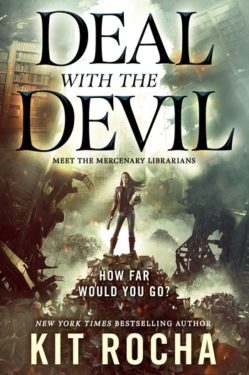
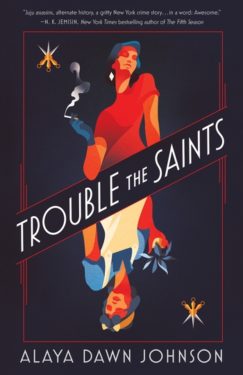
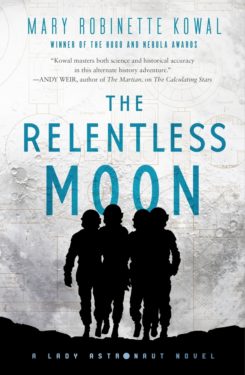
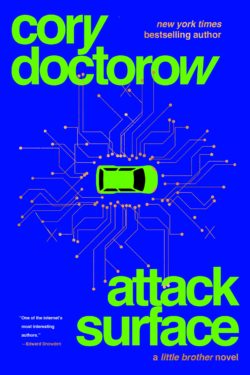
 .
. 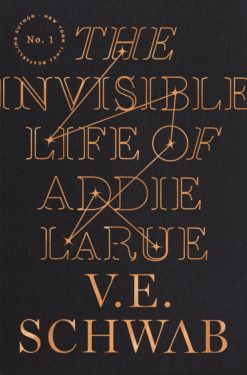











 The Just City
The Just City




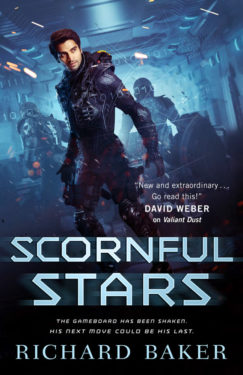 Scornful Stars
Scornful Stars
 My Real Children
My Real Children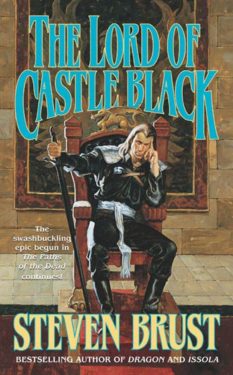 The Lord of Castle Black
The Lord of Castle Black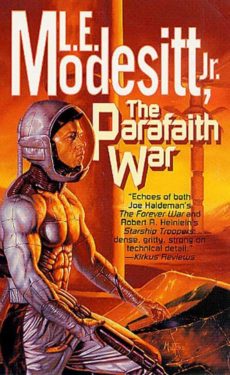 The Parafaith War
The Parafaith War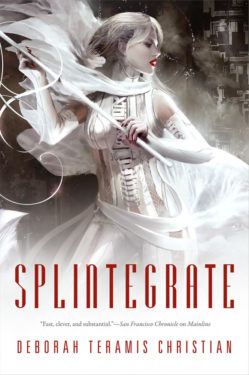 Splintegrate
Splintegrate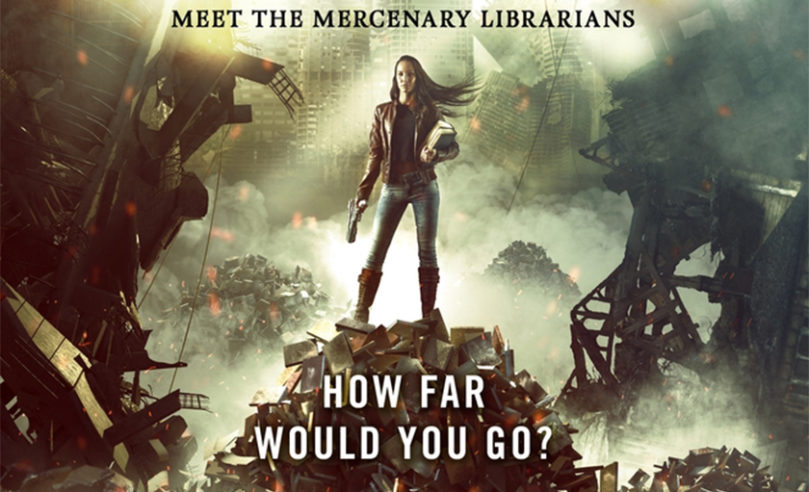
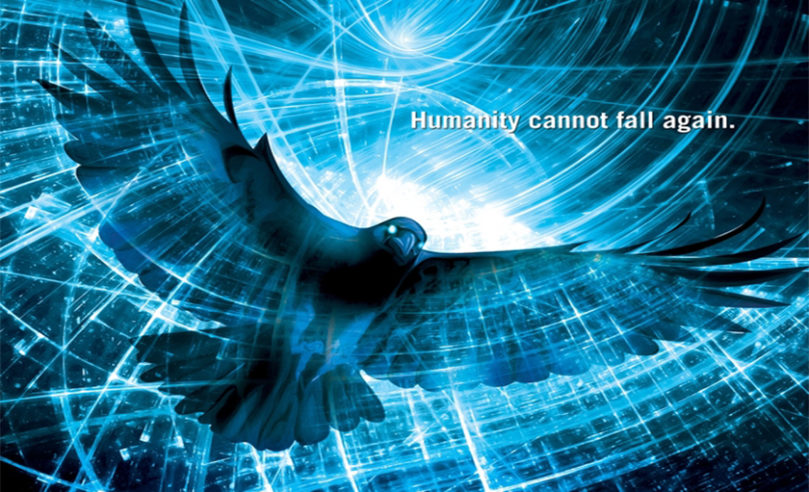
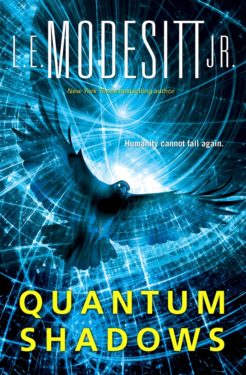 Bestselling author of The Mongrel Mage, L. E. Modesitt, Jr’s Quantum Shadows blends science fiction, myth, and legend in an adventure that pits old gods and new against one another in a far future world.
Bestselling author of The Mongrel Mage, L. E. Modesitt, Jr’s Quantum Shadows blends science fiction, myth, and legend in an adventure that pits old gods and new against one another in a far future world.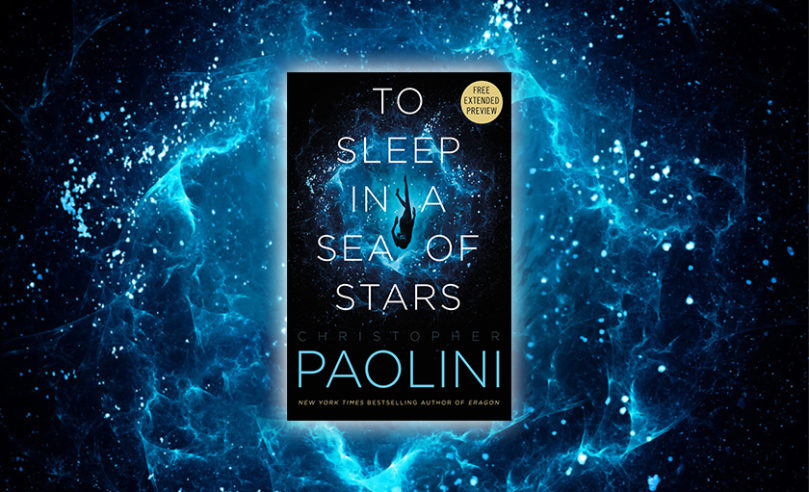
 Start reading Christopher Paolini’s highly anticipated To Sleep in a Sea of Stars with
Start reading Christopher Paolini’s highly anticipated To Sleep in a Sea of Stars with 
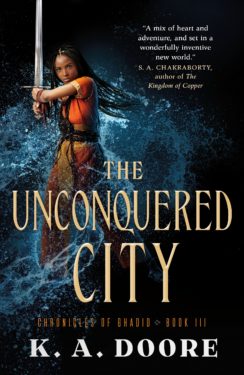 The final volume in K. A. Doore’s critically-acclaimed assassin fantasy series, praised by Publishers Weekly as “a hit with fans of Sarah J. Maas and George R.R. Martin” (starred review)
The final volume in K. A. Doore’s critically-acclaimed assassin fantasy series, praised by Publishers Weekly as “a hit with fans of Sarah J. Maas and George R.R. Martin” (starred review) Kate Elliott, author of
Kate Elliott, author of 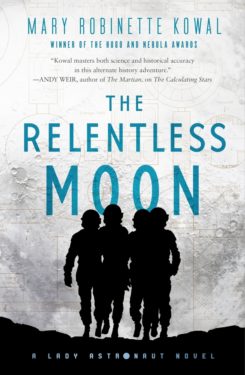 Mary Robinette Kowal, author of
Mary Robinette Kowal, author of 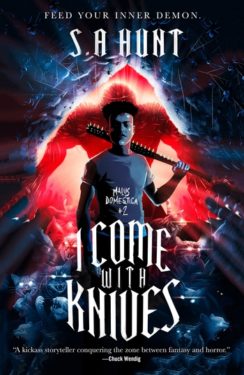 S. A. Hunt, author of
S. A. Hunt, author of  Ryan Van Loan, author of
Ryan Van Loan, author of 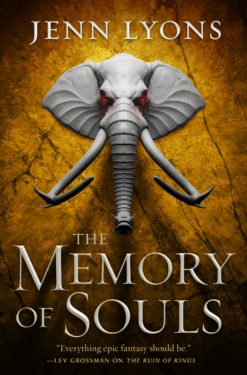 Jenn Lyons, author of
Jenn Lyons, author of 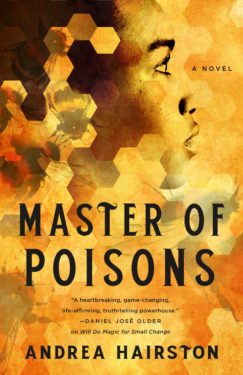 Andrea Hairston, author of
Andrea Hairston, author of 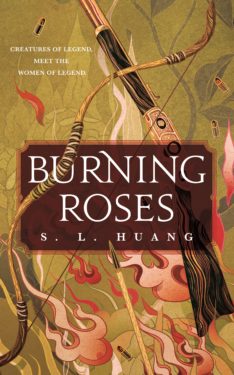 S. L. Huang, author of
S. L. Huang, author of